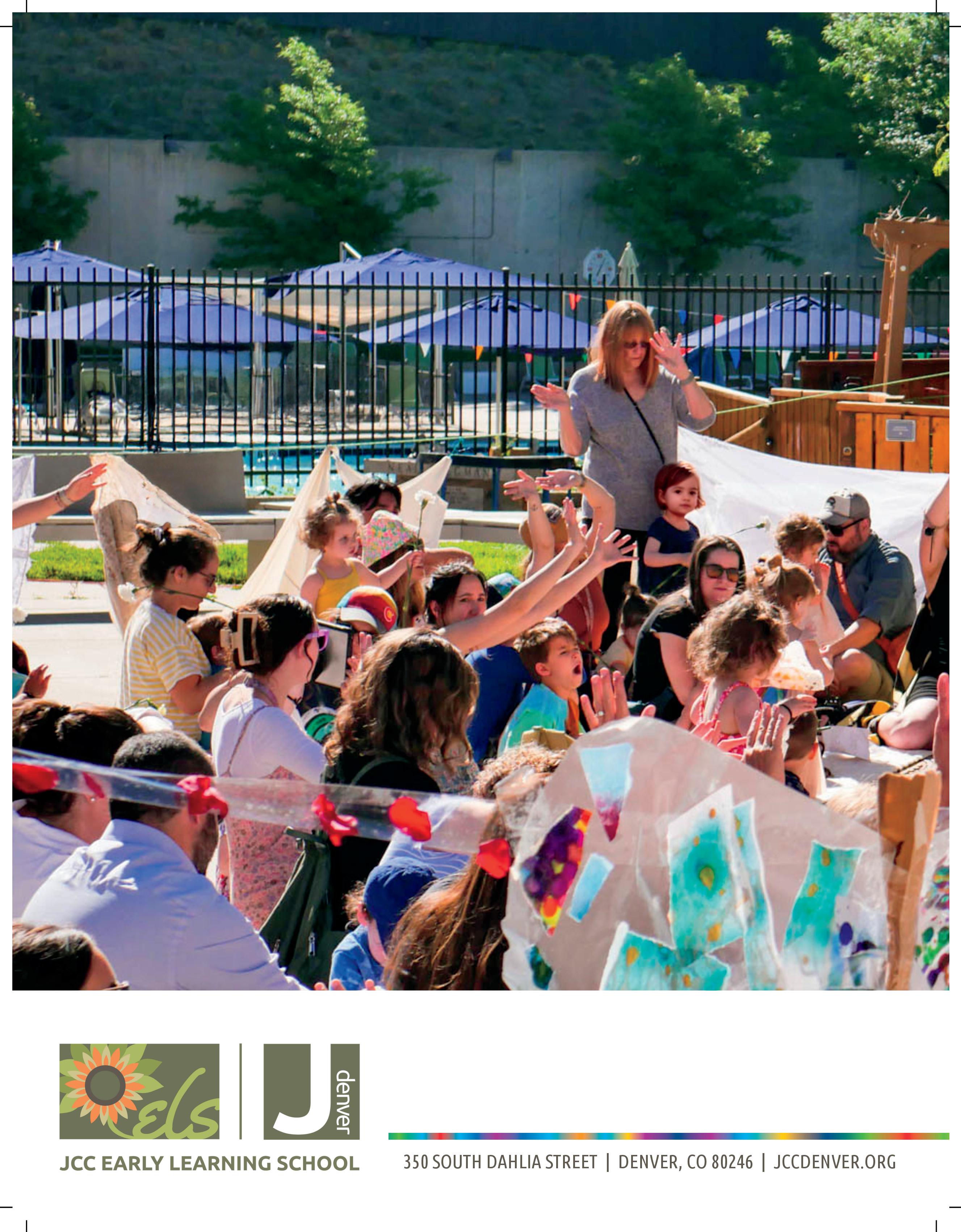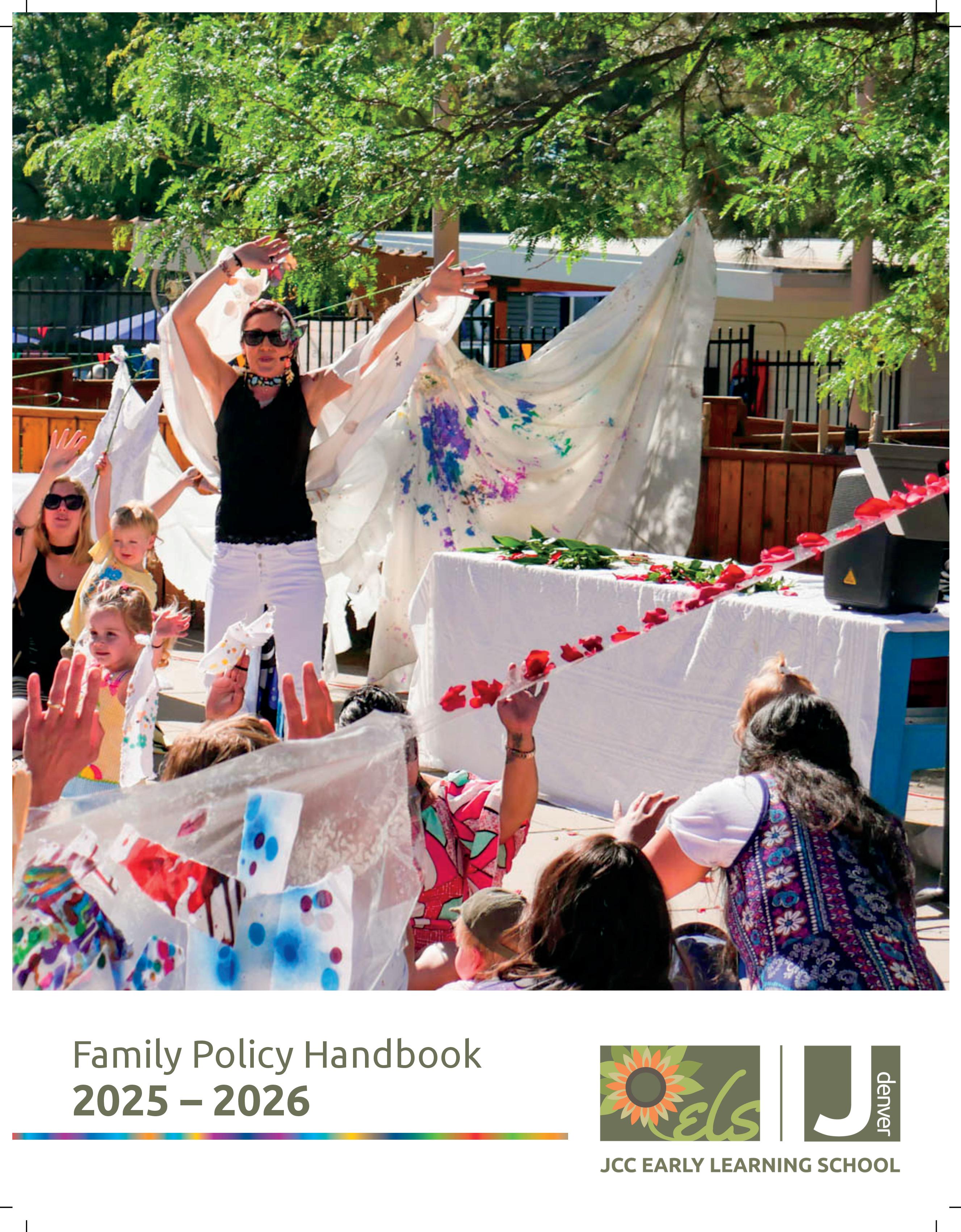

Welcome
Welcome to the Early Learning School (ELS)! We are honored to partner with you in your child’s early learning journey. This handbook outlines the policies and procedures that support our commitment to providing a safe, healthy, and nurturing environment for all children and families.
At the ELS, our community of teachers work hard to foster a sense of curiosity, creativity, and imagination, while also teaching our students the values of respect, responsibility, and collaboration. Our approach to early childhood education is informed by progressive educational practices, universal Jewish values, and a constructivist* philosophy, all woven together to guide and inspire us to celebrate the uniqueness of each individual in our school. Our approach to learning empowers our educators to tap into our students’ natural proclivity for exploration and wonder, while also ensuring that each individual feels valued as a member of our community.
We are looking forward to working with you family this year – and here’s to a great school year ahead! - ELS administrative team and educators
* The ELS reserves the right to revise or add to this Handbook. Changes will be communicated to you by the ELS Administration.
* The constructivist approach views children as active participants in their own learning. Educators play a vital role in this process by co-constructing learning experiences with children by observing their interests, asking thoughtful questions, and providing materials and opportunities that deepen exploration. Rather than relying on rote memorization, this approach emphasizes meaningful engagement while encouraging children to integrate new knowledge, make connections, and explore ideas further.
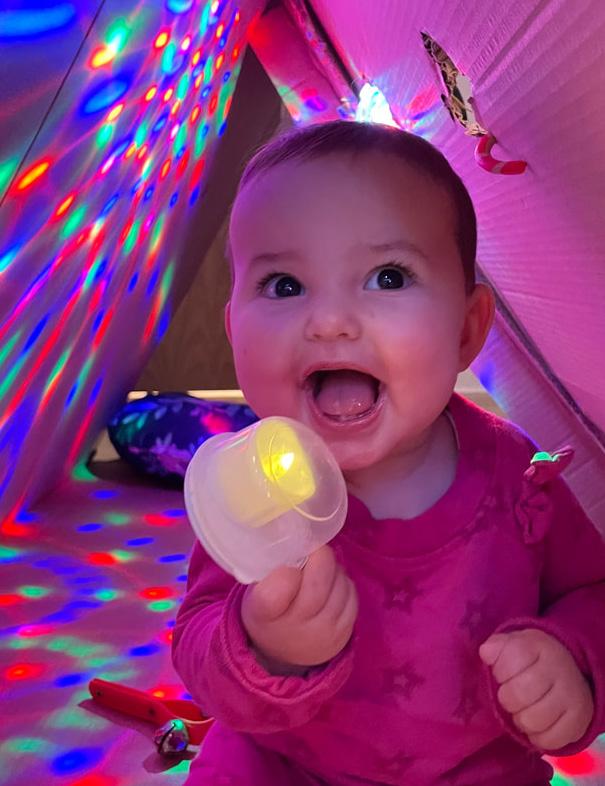
General Philosophy
The ELS serves children ages two months to five years. We believe that play is the work of children. Through play, children explore the world and form connections and relationships with people and objects in their environment. These associations are the foundation of more formal education and learning in the future. The ELS offers a child–centered curriculum, based on a constructivist approach. What that means is that, through careful observation and documentation of the children’s interests and play, our teachers create discussion topics and offer activities that capture their natural curiosity. As part of our belief that learning takes place through play and “hands–on” experiences, children are encouraged to develop creativity and critical thinking skills through a balance of structured activities and interactive play.
We encompass the SHEVA Early Learning Framework of the JCC Association of North America Sheva Center. Everyday experiences are infused with Jewish traditions and values. The Sheva (which means ‘seven’ in Hebrew)
Early Learning Framework has seven core lenses and elements that help guide our school. The goal of the Sheva Center is to raise the excellence in JCC early childhood programs in North America by offering a diversity of professional development opportunities for administrators and classroom educators.
The seven core lenses are as follows: :
• MASA – Journey (Reflection, Return, and Renewal)
• B’TZELEM ELOHIM – Divine Image (Dignity and Potential)
• BRIT – Covenant (Belonging and Commitment)
• K’DUSHAH – Holiness (Intentionality and Presence)
• HIT’ ORERUT – Awakening (Amazement and Gratitude)
• DRASH – Interpretation (Inquiry, Dialogue, and Transmission)
• TIKKUN OLAM – Repair of the World (Responsibility)
Our developmental philosophy involves a three-way partnership between teachers, parents and children. It is based on the following assumptions:
Teachers:
Teachers are part of an ongoing learning community, and are afforded the time for personal and professional development. Their education, knowledge, experience, and passion enrich their own lives as well as the lives of young children and their families.
• Maintain an emotionally and physically safe environment.
• Are knowledgeable of child development and child learning.
• Work with each child to understand their individual needs, strengths, and interests.
• Are skilled in incorporating their knowledge into the classroom program.
• Understand and are sensitive to the cultural and social contexts of the children in the class.
• Work as a team with colleagues, parents, and administrators, as well as consultants that may be brought in for specific situations.
• Plan and maintain an enriching, stimulating curriculum and environment.
• Understand the value of childhood as an important stage in life unto itself and not just as preparation for the next stage.
Families:
• Are encouraged to share skills and interests with the children.
• Are encouraged to share family traditions with the teacher and the class.
• Work as a team with teachers and administrators by sharing information and concerns about their child.
• View and treat early childhood educators as professionals in their field.
Children:
• Are treated with respect and dignity at all times by teachers, staff, and administration.
• Are nurtured in warm, caring relationships with staff.
• Are provided with a free choice experience in the classroom and outdoors.
• Are viewed as capable and competent learners.
• Are appreciated as individuals.
Our developmental philosophy and practice support the growth and learning of children in a safe and nurturing environment. We are committed to providing a developmentally appropriate program for the children of the JCC ELS.
Inclusion Statement
At the ELS, we are committed to supporting the unique strengths and needs of every student and family while fostering a safe, welcoming, and inclusive environment for our entire school community. We believe all children have a right to quality early education and are passionate about our role in your child’s growth and development.
We deeply value the role of families and outside professionals as collaborative partners in your child’s development. Collaboration allows us to better understand each student’s unique needs and support the development of prosocial behaviors that align with their strengths and goals. This team-based approach allows us to align strategies, reinforce shared goals, and create cohesive support systems that reflect the child’s strengths and learning profile.
At the ELS, inclusion means celebrating each child’s individuality while working collaboratively to ensure they feel safe, seen, and supported. We strive to create a joyful, respectful environment where every child and family feels a strong sense of belonging.
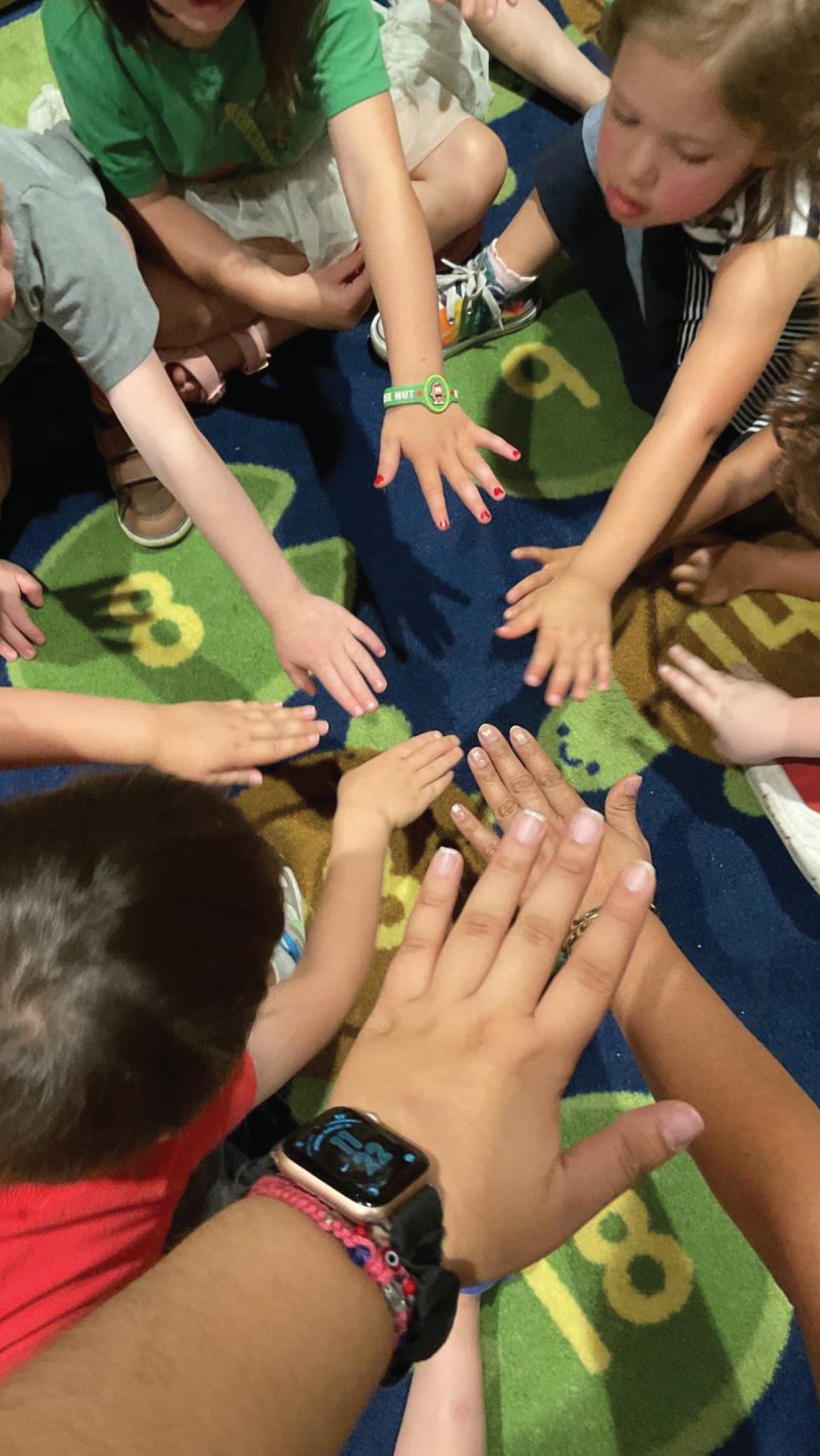
Administrative Procedures & Operations
Hours of Operation
Our core school day runs from 8:30 am – 3:30 pm. We offer limited spots in our extended morning program from either 7:30 – 8:30 am or 8:00 – 8:30 am, and extended afternoon from either 3:30 – 4:30 pm or 3:30 – 5:30 pm.
ELS Phone Numbers
ELS Front Desk & Attendance Line
ELS Director, Paula Voss
Assistant Director of Education, Abby Hoese
Assistant Director of Programming and Licensing, Nick Swann
Early Intervention Specialist
General Manager, Courtney Jacobson
Closings and Holidays
303.316.6377
303.316.6387
303.316.6351
303.316.6327
303.316.6361
303.316.6326
The school calendar is located on the JCC Website under the Early Learning School, as well as posted on the school’s blog (Weebly). The ELS is closed for federal holidays, major Jewish holidays, teacher professional development days, and parent-teacher conference days. We work hard to communicate upcoming holidays or schedule changes, but it is recommended to check the calendar for the most up-to-date information.
Daily Procedures & Brightwheel
The ELS uses the Brightwheel application to track attendance and provide updates on your child’s day including photos, insights to provocations and experiences, diapers, naps, and mealtimes. Brightwheel can also be used for basic communications between families and teachers as well as school-wide communications and updates.
Please note: our teachers are expected to focus on supervising children during the school day, so you can anticipate teachers responding to messages at the beginning and end of the day, or during naptime. For urgent matters please call the front desk (303.316.6377).
These procedures were designed to maximize safety and help us account for your child in the event of an emergency, and are required by the Colorado Department for Early Childhood’s Licensing & Administration, including:
Drop-off & Pick-up
Drop-off begins at 8:30 am (unless a child is registered for Extended AM). We encourage families to support their child with hand-washing upon entering the classroom. Families should develop a drop off routine that can be done consistently day to day. This is to support the child in their transition to school.
During pick-up, please check the sign at the front entrance for your child’s whereabouts. Make sure you leave enough time to have your child and their possessions fully picked up by their assigned time.
Morning Drop-Off Procedures
Each morning upon arrival, you will check your child in using Brightwheel on your phone, the classroom iPad, or the Admin iPad at the front of the school and complete the health questionnaire.
Afternoon Pick-Up & Authorized Pick Ups
Each afternoon, you will check your child out using Brightwheel on your phone, the classroom iPad, or the Admin iPad at the front of the school. Please ensure that the person picking up your child signs them out via the Brightwheel app using the iPad at the ELS front desk or the classroom iPads.
Any adult intending to pick up your child must be noted on your “Authorized Pick Up” form online in your student’s Brightwheel in order for us to release your child to them. If a child is going home with a friend, that child’s guardian must communicate with the Administrative team via e-mail, phone call or in person to add additional authorized adults to their student forms. Please ensure they have their own Brightwheel login for pick-up and drop-off prior to their arrival at school.
All authorized adults are expected to present a government issued photo ID when picking up their student(s) each day. We may recognize your face, but we need to see it on a government-issued photo ID for the safety of our community. Please remember that our staff members interact with hundreds of family members each day and every family is different. We require a photo ID so that we can ensure we are always releasing your student to an adult who has been authorized to pick up that child. We appreciate your support in making our school a safe place!
Late Pickup Policy
Please take weather and traffic conditions into consideration when planning your pick-up time. If you know you will be late, please call the Front Desk, 303-316-6377, and let us know!
• A $25 late pick-up fee will be applied for late pick-ups.
• If a child is not picked up by 5:35 pm and we are not able to reach the family, individuals listed on the child’s emergency form will be called to pick up the child. Child Protective Services (CPS) will be called as a last measure if no individual can be contacted to pick up the child and we have not heard from the parents.
Attendance and Schedule Changes
If your child will be absent, arriving late, or picked up early on any given day, please notify us by 9:00 a.m. This helps us plan for the day and ensure smooth transitions for all children. You can notify us by:
Calling the school at 303.316.6377 (especially for early pick-ups or late drop-offs),
Updating your child’s status in Brightwheel by marking “Absent,” “Late Drop-Off,” or “Early Pick-Up,” If your child is sick, please share their symptoms via Brightwheel to support our health tracking efforts.
When planning a late arrival or early pick-up, please check in with your child’s teachers or the ELS Admin team to ensure the timing does not disrupt the classroom’s nap schedule.
What to Bring to School
Comfortable Clothes
Wear comfortable, suitable clothing for the weather. We suggest that an extra jacket/sweater/ sweatshirt (labeled) be left in your child’s cubby in case of an unexpected weather change. We engage in a number of “messy activities” both indoors and outdoors. Because we do not want to inhibit the child’s creativity or stifle their participation, we offer (but do not require) the wearing of smocks, if the child is resistant. Therefore, we ask that you send your children in comfortable clothes (labeled) that you know may get dirty.
Comfortable Shoes
The children do a great deal of running, climbing, jumping, and playing. For their safety and comfort, we require that children wear footwear at all times while at the ELS. The exception is that we allow children to go barefoot while playing in the sandbox and at naptime. Children should wear age appropriate, rubber-soled footwear (no clogs, Crocs, flip-flops, boots with high heels, etc.) that fit securely on their feet. Please send boots (labeled) to school after it snows or rains, as the children will still go outside to play.
Hearty Lunch & Snacks
Children eat lunch together in their classrooms – so please put your child’s name on their lunch and any accompanying utensils. We recommend an insulated lunch box and ice pack to keep food fresh. We cannot refrigerate or microwave children’s lunches and glass containers are not allowed. If you want to send hot lunch items, we recommend using a thermos.
Bottles, Sippy Cups, and Water Bottles
Infant and Toddler Class parents are asked to supply their own children’s bottles and sippy cups (labeled with their first and last name). Bottles will be sent home each day for cleaning. Children of all ages should have a water bottle (labeled with their name) that is brought to ELS each day to ensure that their child has water available at all times. Water bottles will be sent home each day to be cleaned for the next day.
Napping Supplies/Bedding (on Mondays)
Each child is required to bring a crib sheet and small blanket on Mondays. The bedding will be sent home at the end of each week to be laundered. Large pillows, quilts, sleeping bags, and large stuffed animals will not be allowed due to limited space. Pacifiers for naptime will be evaluated on an individual basis.
Diapers and Supplies
If your child is in diapers, be sure to keep your child’s diaper supply well stocked. Diapers are changed at a minimum of every two hours or when soiled.
Bring the following supplies (labeled) to class on the first day:
• Disposable Diapers
• Two-week supply of disposable diapers
• Two-week supply of wipes Cloth Diapers
• One-Day Supply (must have a fresh cover for each diaper change)
• Wipes & sealable wet bag.
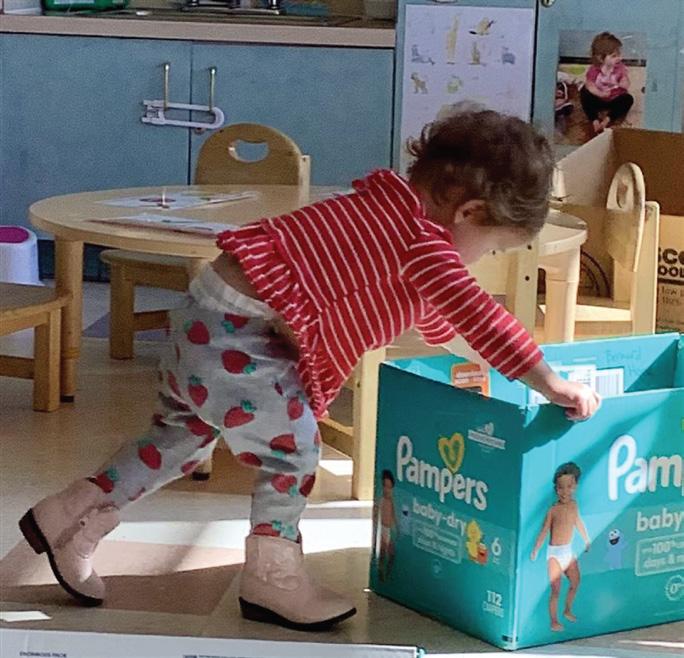
What NOT to Bring to School
Items from Home
Please do NOT send items from home (i.e., toys) to school with your child unless it is for a specified sharing time requested by the teacher or a transitional object for younger children. If your child does bring something from home, please label all items with your child’s name. We will not be responsible for lost or broken treasures. We request that children not bring money to school. If there is money requested to be brought in for a Tzedakah project, all funds will be collected by the ELS Administration team. We do not allow weapons, war toys, action figures, fragile, or valuable items.
Safe Sleep for Infants
For our infant room, we follow safe sleep practices. This includes the usage of pacifiers in cribs. Pacifiers are permitted, however “Wubbanub” (pacifier with a lovey attached) are not allowed in the crib at any time. We keep cribs free from all toys, bumpers and blankets. All children will only use an armsfree sleep-bag for comfort and warmth. Swaddling or use of a “Merlin sleep suit” will only be allowed by a physician’s order and signature. We cannot use a weighted sleep sack or suit due to licensing regulations.
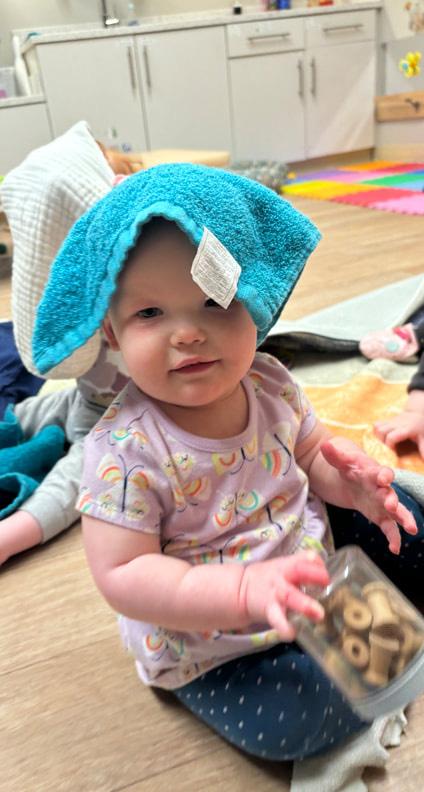
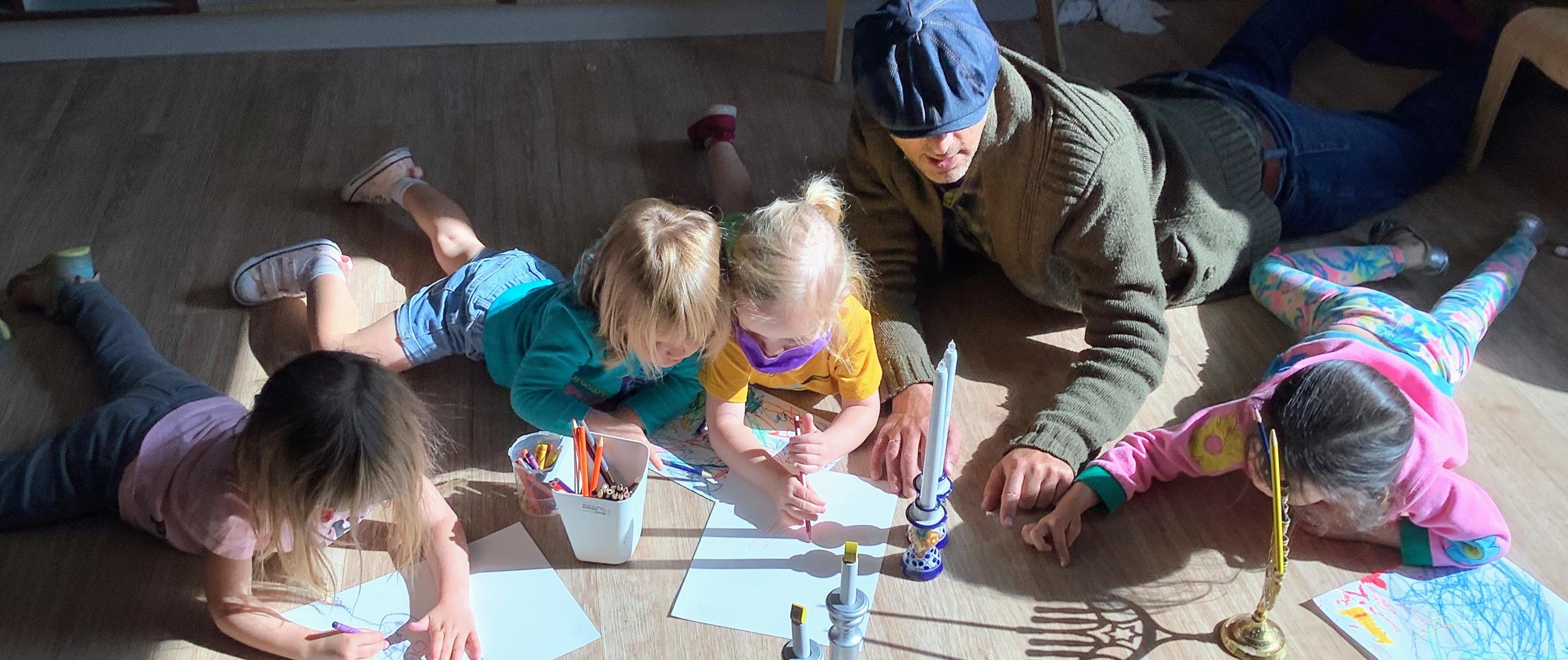
Children’s Placements
Class Grouping
We follow the same cut-off date, October 1, as Denver Public Schools. As such, children must be the age reflected in the class description. For example, to be enrolled in a 3-year-old class, the child would need to be three years old by October 1 of that school year. Additionally, the ELS reserves the right to delay admission to a child in a particular class if the ELS determines it is not a developmentally appropriate placement for the child. If there is a concern with a child’s readiness to transition, this concern will be brought to the ELS Admin team and the child’s caretakers to create an adjusted timeline to support the individual child’s development.
Any child that is in a 2-year-old classroom but will be turning three years old during the school year, will need to have a completed continuity of care statement from their health care provider. In compliance with Colorado State Licensing, the ELS may require a note from the student’s health care provider regarding continuity of care, physical ability, or developmental ability. In the event your child would need such a note, ELS Admin would notify you in advance.
Transitions
As the ELS follows a traditional school year schedule, we align our move-ups to a once-a-year transition to the older classroom. This means your child will spend at least August to May with the same children, teachers, and age group, except by extenuating circumstances. They most likely will also stay with that class through the summer (June-August) and then move to an older classroom in August with the start of the new school year.
When creating class rosters in the fall, we consider a variety of factors in addition to the age of every particular student. We also consider where the individual child is developmentally. We consider gross motor, emotional development, and other factors such as napping and eating habits. If our team feels a child would benefit from a longer stay in their current room, we will have an individual conversation with the family and decide as a team the best course of action. If you have concerns about your child transitioning to a new room, please let your teachers or a member of the ELS Admin team know so we can assess as a team.
Kindergarten Transition
Children who are age-eligible for kindergarten are expected to transition out of the ELS at the end of the school year in May. Exceptions may be made only with the mutual agreement of the school administration and the child’s teaching team. This decision will be based on a comprehensive review of the child’s developmental readiness and individual needs.
Preschool Mixed-Age Classrooms
The ELS preschool classrooms are all considered “mixed-age.” Children enter a preschool classroom at three years of age and will be considered preschool until graduation. The ELS believes that children should be offered the opportunity to learn from their peers and are offered this opportunity through being in a class with older children. The following year, the children benefit from being the oldest in the classroom and reinforce their own learning by leading the younger children. This structure is based on Vygotsky’s theory of the zone of proximal development, where children’s abilities are advanced by exposure to peers with a slightly higher level of ability and reinforced by demonstrating their skills to others. The ELS will strive to keep children in the same preschool classroom for two years, to allow for a deeper connection to their educators, the physical classroom space, and similarly aged peers.
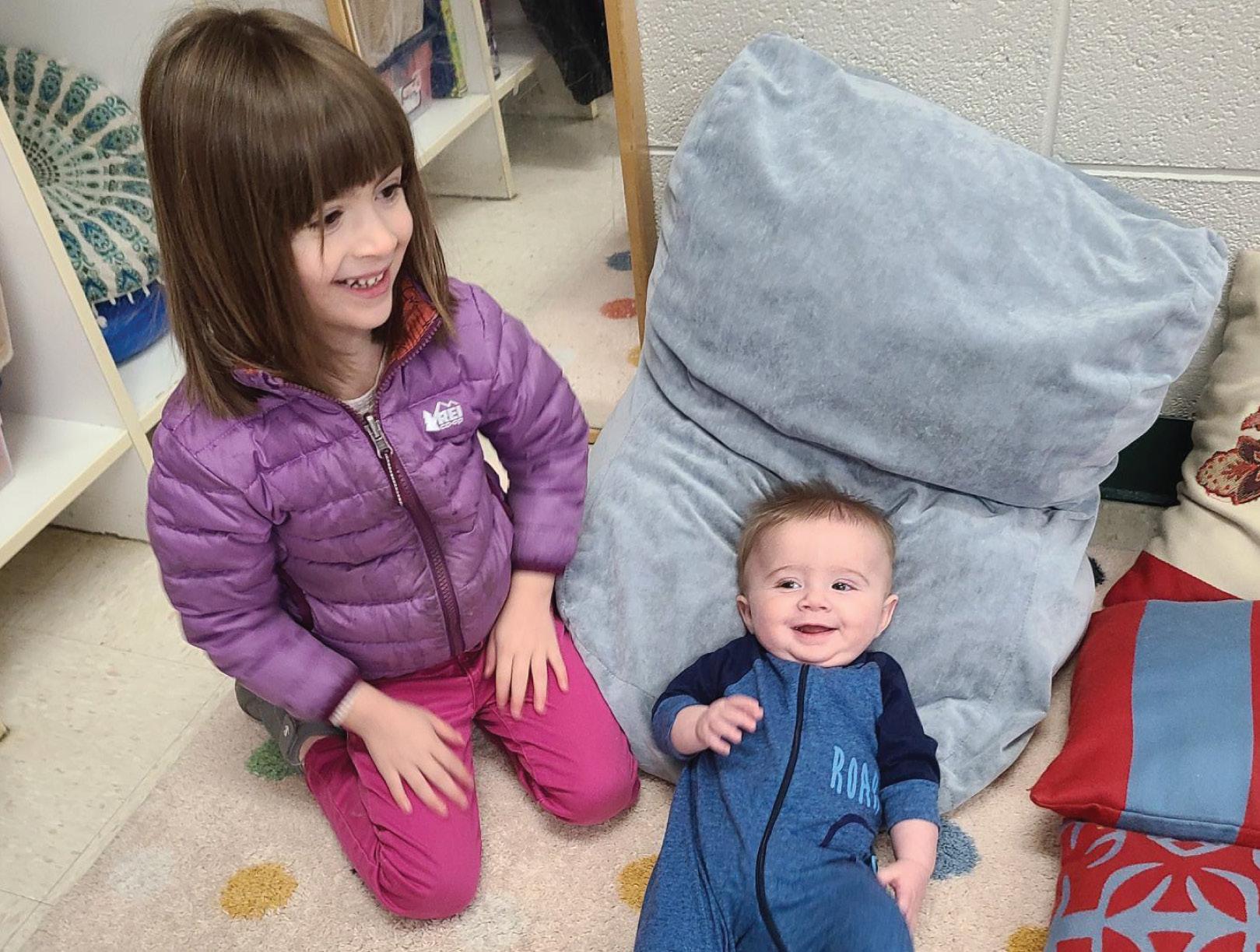
Safety & Inclement Weather
Safety and security are the top priorities of the ELS, and all employees are trained accordingly. We have a dedicated security team here at the JCC and the ELS who run regularly scheduled drills; monthly fire drills, quarterly lock down drills, and seasonal tornado drills. The JCC has an armed security guard on premises during JCC normal operating hours.
Face-to-Name
We adhere to a face-to-name policy in the ELS. All teachers are trained to acknowledge each child’s face to their name, to check each child into their class before, during, and after any transition. The face-to-name is located in Brightwheel, so it is important that the family add a current picture of their child to their Brightwheel profile before their child’s first day at school. This procedure is followed each day and repeatedly throughout the school day.
First Aid Procedures
All ELS Educators will be trained in First Aid and CPR. If an injury requires medical attention, but is not an emergency, we will call the child’s guardian. If a guardian cannot be reached, we will call the emergency contacts listed on the child’s Emergency Contact form.
If the injury requires immediate emergency treatment, 911 will be called, as well as the guardian. An ELS administrator will accompany the child to the hospital if emergency personnel deem transport to the hospital necessary, and the child’s guardian has not arrived yet.
Accident and Incident Reports
If a child is injured, the staff person attending to the accident or incident will complete a report and inform an administrator, who will scan a copy of the report in the child’s file in Brightwheel and a copy will be sent home. Please note that we do not give out the names of other children involved in incidences that cause injury. The ELS staff handles altercations and incidences causing accidental injury in an appropriate manner at the time they occur. Additionally, for substantial head bumps that could warrant a concussion, we call families immediately and follow up with the concussion checklist. *See Behavior Policy regarding child biting.
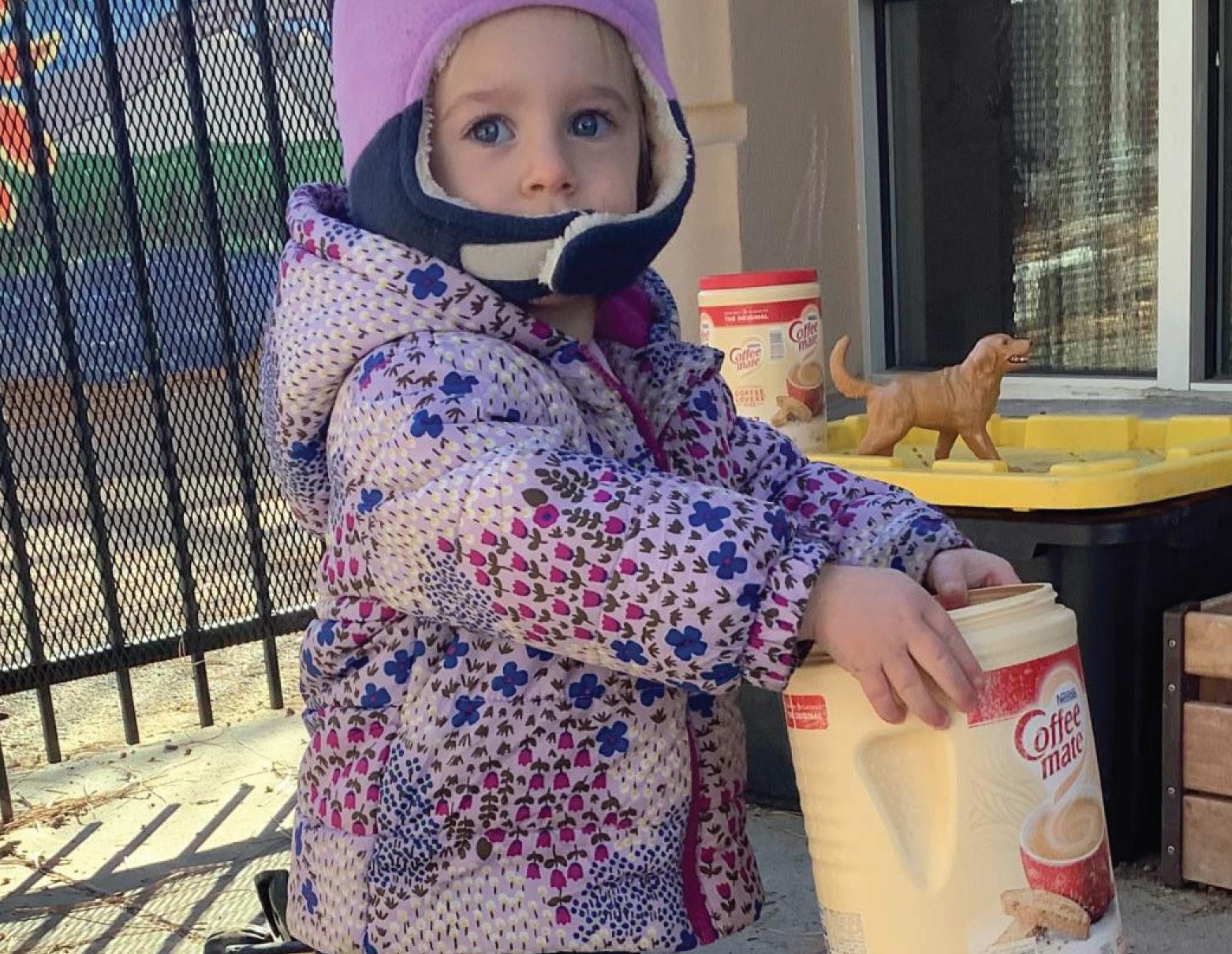
Inclement and Hot Weather
We do not go outside if it is above 90 degrees Fahrenheit, or below 25 degrees; this is at the discretion of the Administration team. Ozone warnings, wind chill, real-feel temperature, etc., are always taken into consideration. We will go outside even when there is snow on the ground if it is above 25 degrees, so please send rain and snow gear for your children. When the weather is stormy or there is lightning, the children are brought indoors and stay inside until the storm has passed and the skies are clear.
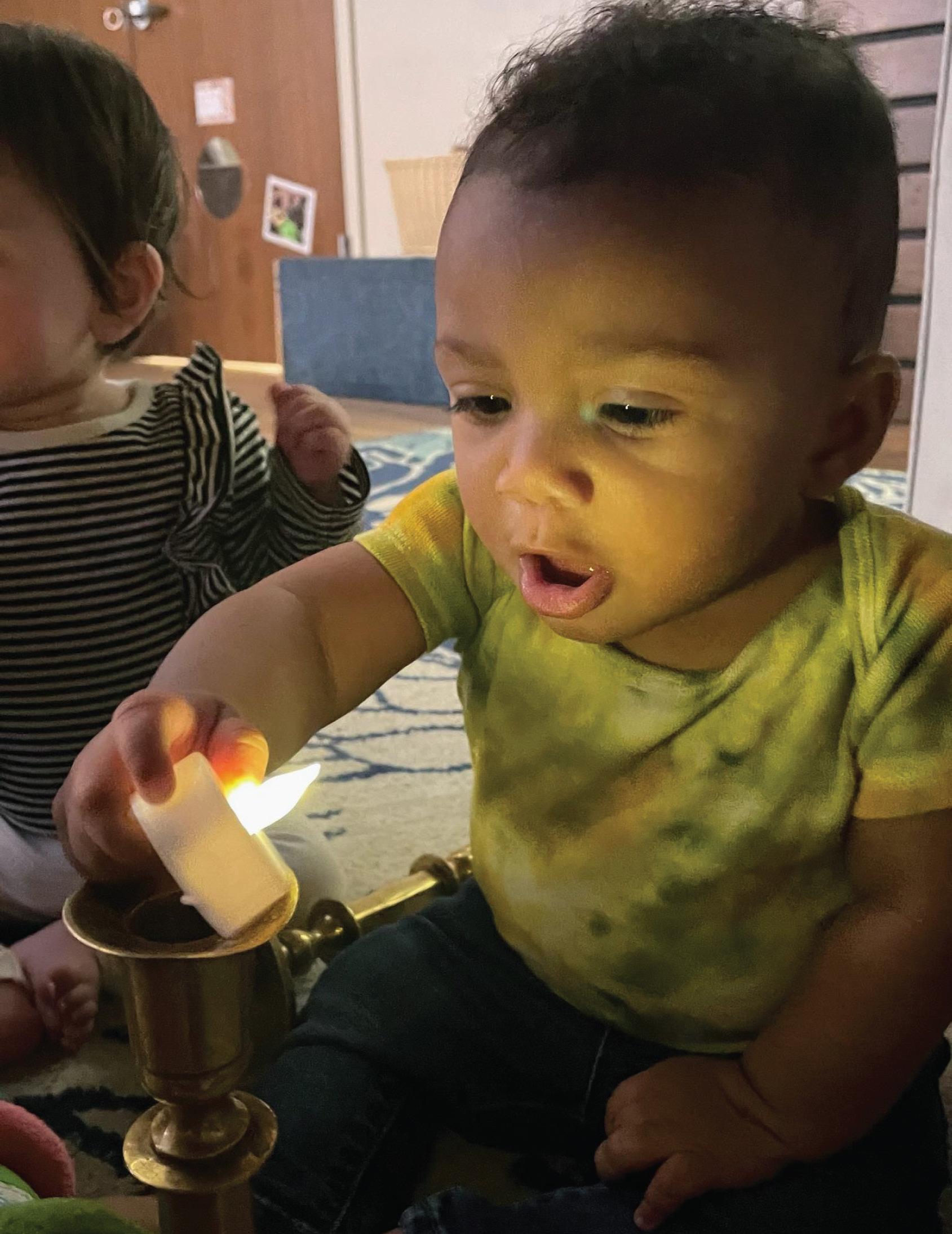
Health and Wellness Policy
• Daily Health Checks: Please fill out the Brightwheel health check at sign in and report any concerns you may have about your child’s health.
• Handwashing: Please help your child wash their hands at drop off. Children and staff wash hands frequently, including before meals, after bathroom use, outdoor play and any sensory experience.
• Immunizations: All children must be up-to-date on required immunizations. Exemptions must be documented and follow state guidelines.
• Medical Conditions: Families must inform the school of any chronic conditions (e.g., asthma, allergies) and provide necessary medical plans and medication.
Illness Policy Procedures
Do not send your child to school when they are ill. The ELS has strict health and wellness policies to promote the maximal wellness for all children and their families and our teachers. A sick child does not enjoy school and endangers the health of other children and staff. If they are sent to school, it will be up to ELS Staff to determine if you need to pick your child up for any concerns we have with their health or well-being.
• When to Stay Home: See Illness Guide at back of handbook.
• Return to School: Children may return – See illness Guide at back of handbook
• Notification: Families will be notified of communicable illnesses that may affect the community.
We reserve the right to send your child home if your child is displaying any symptoms located in the illness guide. The guidelines have been provided to the ELS by the Colorado Department of Public Health and Environment and are required to be followed by state mandate.
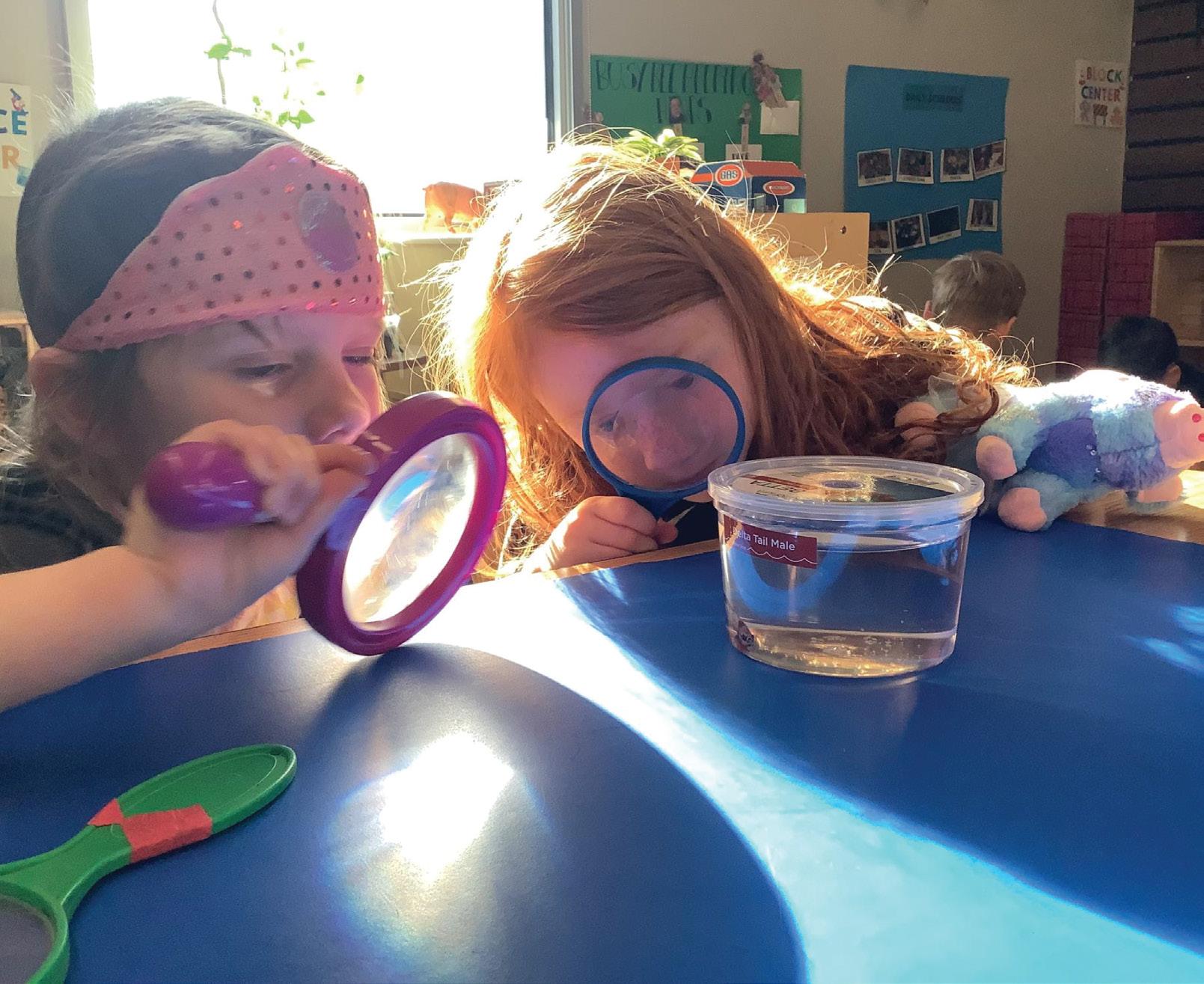
Lice
If we discover a case of lice in the ELS, communication will go out to families about how to check for lice at home and how the ELS plans to check for lice at school. While lice can be highly contagious in a social environment like a school, it is not caused by a lack of cleanliness or by not regularly shampooing.
If there is a case of lice in your child’s classroom, teachers will take all soft material items out to be washed. We will send home all nap bedding and ask that you wash them before returning.
If you discover that your child has lice and/or nits, please do not send them to school and notify the administration. If we find that your child has lice we will call and ask you to pick them up and follow the procedures below for treatment.
• Give your child a lice treatment (professional or over the counter)
• Take the time to comb through their hair with a lice comb
• Continue checking hair for several days for nits (eggs) and remove
Your child may return to school once their hair has been treated and there are no live bugs. It is important to continue regularly checking your child’s hair and carefully following the recommended steps to fully eliminate lice from your home environment.
Outside lice specialists will not be brought into the school, as our administrative team is experienced in identifying lice and will handle assessments as needed.
Short-Term Medications
If your child needs short-term medications (ex: medicated diaper cream, Tylenol, eye drops, antibiotics, etc.), please speak with administration. Do not turn medication in to the teachers or leave in a child’s backpack.
In order to administer the medication, we will need:
• Permission to Administer Medication form filled out and signed by a doctor. You can get this form on the Brightwheel App. The form must be completely filled out with:
• A clearly marked start and end date for medication to be administered.
• Time for administration to occur.
• The medication name and concentration must exactly match the medication stated on the form.
• The medication in the original packaging with prescription label and expiration date.
All non-emergency medication is kept in the ELS front office and will only be administered by medication-delegated employees. Medication-delegated employees have received state-approved training for administering medication and are allowed to administer prescription medication, so long as the appropriate forms have been signed and approved by our Nurse Consultant. The date, time, and dosage are logged and signed by the employees that administer the medication.
*Diaper Rash Cream with an active ingredient is considered a medication and we will need a signed Permission to Administer Medication Form. Do not send the cream with your child – please follow the procedures above. Diaper cream is the only non-emergency medication allowed in the classrooms, requires a Personal Product Form, and will be stored out of reach of the children.
The ELS is required by Colorado State Licensing to adhere to the following:
• ELS staff cannot administer fever reduced medications or cold medications with fever reducers. Children with fevers are not permitted to attend school.
• No medication, including vitamins, is allowed in the child’s lunch box, backpack, or anywhere in the classroom. This is for the safety of your child and the other children. This will be strictly enforced by removing any medication found and returning it to you at pick-up time.
• We are not allowed to give any homeopathic medication, as it is not FDA approved. Please do not send any homeopathic medication to school.

Allergies
The ELS’s policies and practices around allergy prevention and treatment are designed to be inclusive, so that all children can attend the ELS safely and be active members of our community.
If your child has allergies to foods, medications, insect bites, or any other allergies, you must have your doctor fill out the Allergy Action Form prior to your child’s first day of school. This form is required for your child to attend school. This form must also be approved by the ELS nurse 72-hours in advance of your student’s first day at school each school year. It is the parent’s responsibility to keep prescriptions up to date at all times. Non-compliance could subject students to needing to stay home until the appropriate forms and/or mediation are provided.
The Allergy Action form provides the staff at the ELS with valuable information about what your child is allergic to, what a reaction would look like, how severe it might be, and actions to be taken in the event of an allergic reaction. In addition, we require any family with a child who has allergies to set up a face-to-face meeting with the ELS Administration. Families, classroom teachers and administration will read and sign an Allergy Agreement once the family has answered all questions on the agreement form. This form will be given to families once enrolled in the ELS.
Emergency Communication
If there is a change in your child’s allergy or there is information that needs to be given to teachers concerning your child’s allergy, you must contact a member of admin first. Administration will relay any information that teachers need, or set up a meeting for you to discuss the change.
All allergies are posted in each classroom with the child’s picture (behind a cabinet for confidentiality purposes). Each classroom that has an allergy in their room has a sign on the classroom door, ensuring that anyone entering the classroom is aware of an allergy in the room.
Emergency Medications – including Epi-pens, Inhalers, and Antihistamines
All medications must be accompanied by either a JCC Allergy-Anaphylaxis Care Plan or a Permission to Administer Medication Form, both of which need to be filled out by a physician and signed by the parent. If your child has a JCC Allergy-Anaphylaxis Care Plan or a Permission to Administer Medication Form that requires an epi-pen, antihistamine, or any other medication (i.e., children’s ibuprofen) the following guidelines must be adhered to for licensing:
• The medication (including epi-pens) must be in its original package with original label and prescription for the child.
• All medications must be checked in with ELS Admin team.
• Medication must be accompanied with a JCC Allergy-Anaphylaxis Care Plan signed by the child’s physician.
• Medication must match the exact orders on the JCC Allergy-Anaphylaxis Care Plan and/or the Permission to Administer Medication Form
All emergency medication (epi-pens, antihistamines, inhalers, etc.) will be kept in the classroom with the teacher in a stored container out of the reach of children. All teachers who have a child in their classroom with emergency medication have received the state approved training for administering allergy and asthma medications.
We practice the following to prevent cross-contamination:
• Notice to all families of food allergies via email.
• Classroom signage on front of door.
• One table designated and labeled as “allergen free”.
• All staff and children wash hands at start of day, after toileting, before and after sensory play, when returning to the classroom, and before and after eating. Staff follow all Standard Precautions required through the state of Colorado.
We may restrict or prohibit certain foods in a classroom when the severity of an allergy warrants it or when we cannot reliably prevent accidental ingestion.
Classrooms that have a child with a food allergy will receive an informational packet that includes details about the allergy and a list of safe food alternatives to assist with lunch and snack planning.
Lotion and Sunscreen
Even on cloudy days, children are susceptible to the hazards of sun exposure. Unless weather does not permit, teachers will take children outside every day. Please apply sunscreen to your children before bringing them to ELS. Parents should notify teachers of what time they applied sunscreen in the morning so that we know when to reapply. You are encouraged to send sunscreen with your child’s name on it to ELS. It will be kept in a locked cabinet and applied by the teachers prior to going outside or reapplied as necessary throughout the day. If you do not provide sunscreen, we will use Rocky Mountain brand sunscreen (permission to use this is on our forms in Brightwheel)
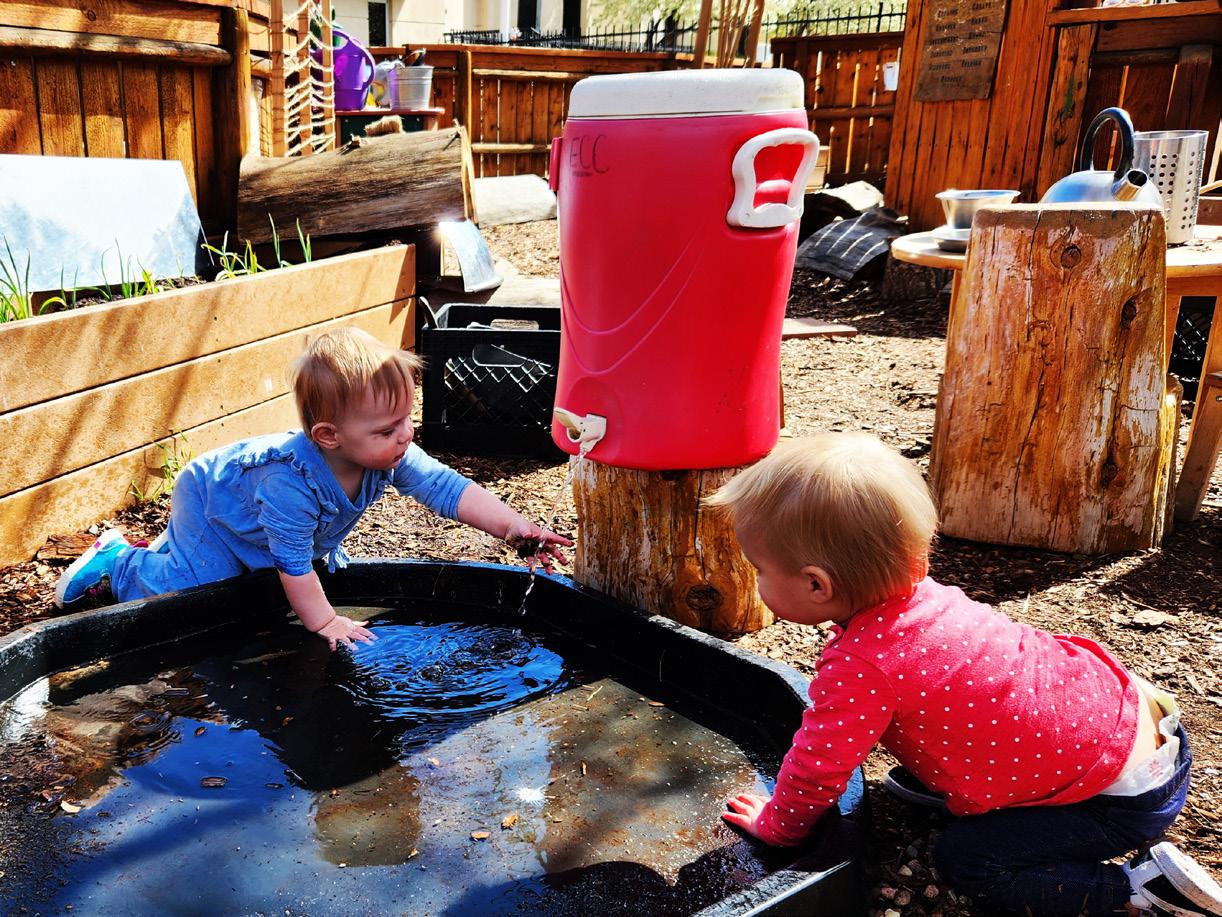
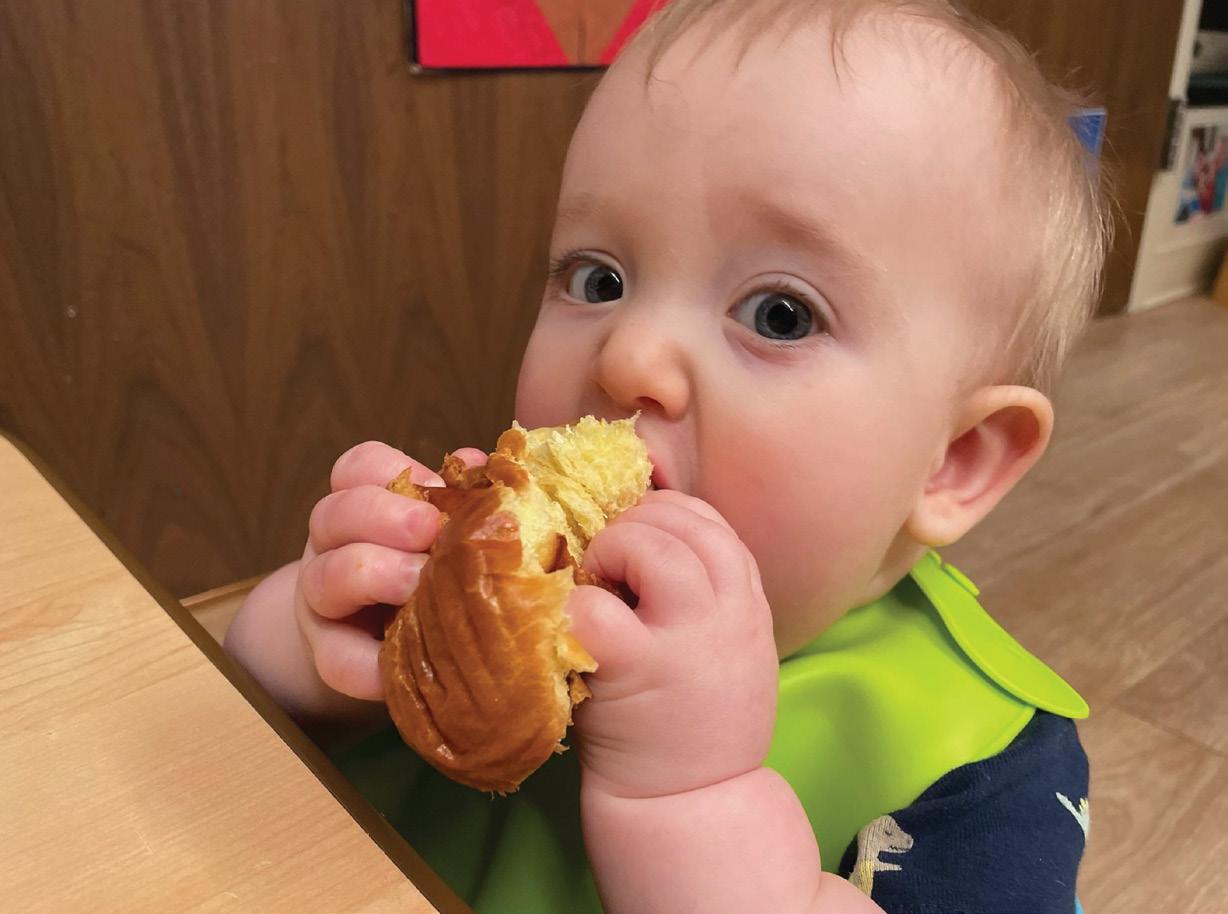
Handwashing
To reduce the risk of introducing new germs into the ELS environment and to help set good habits, we require that your child wash their hands with soap and water as they enter the classroom for the day. Children are also directed and assisted in hand washing routinely throughout the day. Please help your child to wash their hands upon arrival in their classroom as this is a health requirement.
Snack & Lunch
Lunch at ELS is a good place to start developing good nutrition habits in children. Therefore, we encourage families to pack protein foods, fruits, and vegetables, and minimize chips, cookies and sweets. Please do not send candy or soda. We do not place restrictions on the order in which your child eats the food placed in his/her lunch box.
As a result of individual dietary restrictions, children are not permitted to share food from their lunches. We ask that all food is labeled to help teachers stay aware of allergens that may affect others in the class. We will inform parents of any allergies in your child’s class and ask that you be respectful of classroom allergies when packing your child’s lunch.
Breastfeeding at the ELS & Labeling Bottles
The ELS is happy to provide a lactation room for breastfeeding mothers. You may also choose to use this room for expressing breast milk. This room is closely adjacent to the infant wing. Please feel welcome to use this room during the day to keep with your child’s feeding schedule. The room provides 2 comfy chairs, a changing table, an electric outlet and a refrigerator. Breastfeeding will be welcomed in the classroom before 9:30am or after 2:45pm upon drop-off or pick-up.
When leaving breast milk in the classroom, it must be labeled with child’s name and “B” for breast milk. Formula will be labeled with child’s name and “F” for formula. ELS teachers are trained in the proper handling of both breast milk and formula. The ELS will provide information on breastfeeding, including the names of area resources should questions or problems arise.
Kashrut (Kosher Food) Policy
We request that children’s lunches be sensitive to basic kashrut (no pork and no shellfish). ELS is an Allergy Aware school. As a result of high prominence of allergies, we strongly suggest not sending foods with known allergens (i.e., nut, egg, etc.) that are in your child’s class.
The ELS Garden
Our garden is located on the north-west side of the building. We also have several planters throughout our playground. These spaces offer children an opportunity to collaborate with other classes. Our school also offers an Outdoor Classroom and Garden Specialist who works with all the children and teachers. Through the process of planting, watering, and watching, the children learn where their food comes from. Entering through the lens of Tikkun Olam (repair the world), the ELS values engaging children in the process of learning where the food they eat comes from, and how important a connection to the earth is. If your family has a garden at home, let the teachers know and we can find ways to bring your home garden to the ELS!
Dental, Vision, and Hearing Screenings
All children benefit from regular screenings of their teeth, eyes, and ears. If your family needs a recommendation for a dentist, optometrist or audiologist, please contact a member of ELS Admin. If your family would like resources around financial support to ensure your child’s access to these services, we have resources for this as well.
Community Service Providers
If your family is experiencing any sort of financial hardship, the ELS has access to resources to support your family. Please reach out to a member of ELS Administration so we can offer these resources in a confidential space. If your family needs support with mental health services, the ELS has recommendations for this as well.
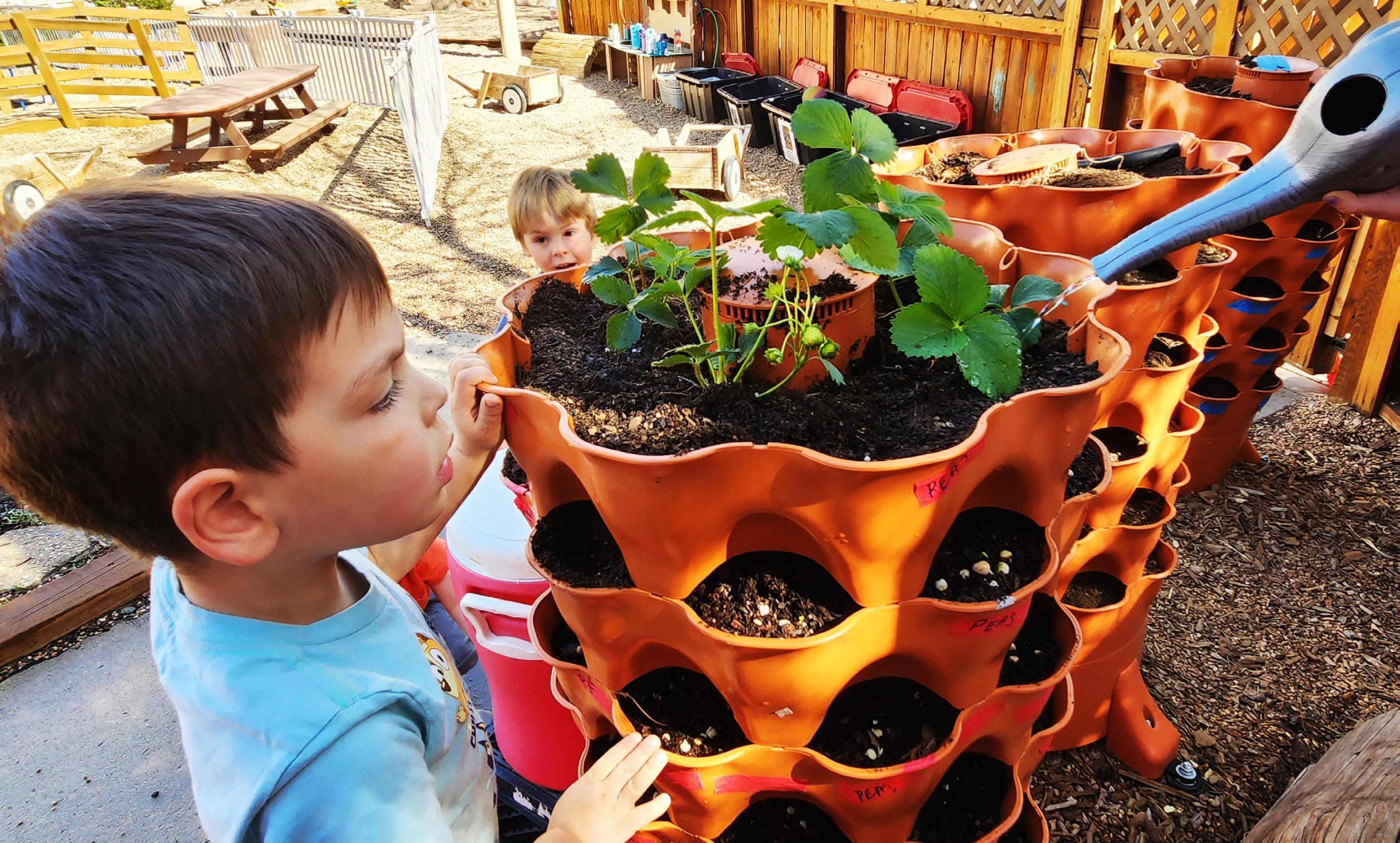
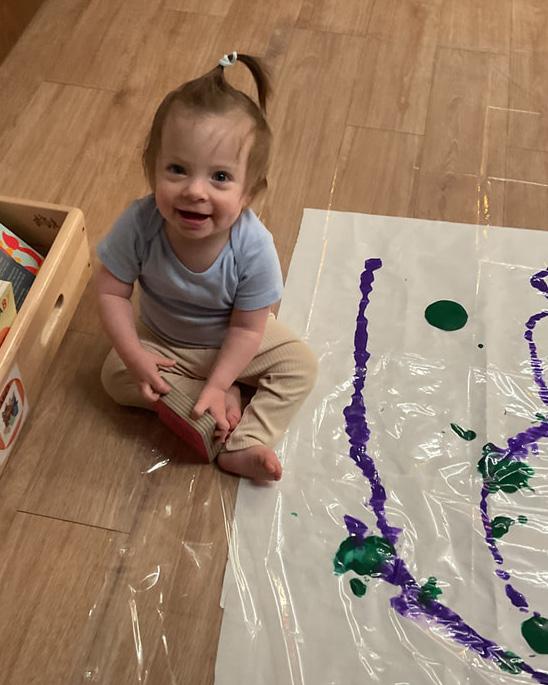
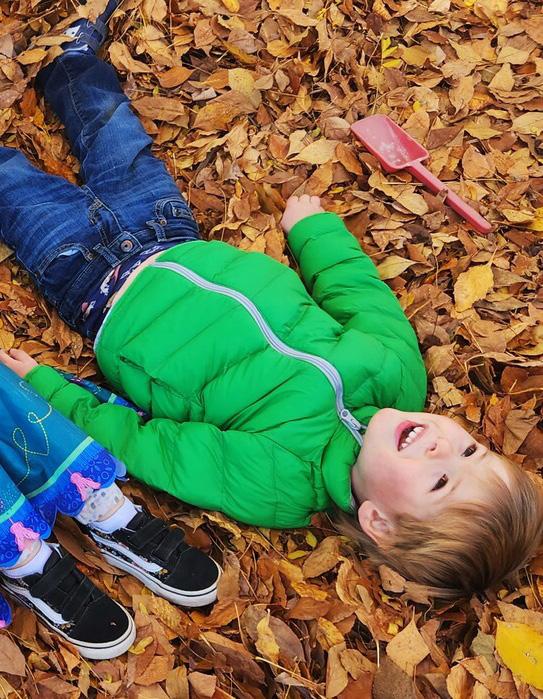
Day to Day Activities & Developmental Milestones
Rest Time and Bedding
Rest time is a great way for the children to relax and have “down time” during a fun-filled, busy day.
Infants
Infants nap on their own schedule. This will be discussed between parents and teachers periodically throughout the year as nap routines change. We require a sleep sac to be sent to school, no blankets.
Toddlers
Rest time starts between 12:00 - 12:30pm and is no longer than 2.5 hours. If children are still awake after 30 minutes on their cot, then they will be given a book or quiet toy to engage with on their cot for 10 minutes. After 10 minutes with a book and/ or toy, they will be brought to a table for a quiet activity unless additional staff are available to take them out of the room and to another space.
Twos
Rest time starts between 12:00 - 12:30 pm and is no longer than two hours. If children are still awake after 30 minutes on their cot, then they will be given a book or quiet toy to engage with on their cot for 10 minutes. After 10 minutes with a book and/ or toy, they will be brought to a table for a quiet activity unless additional staff are available to take them out of the room and to another space.
Preschoolers
Rest time starts between 1:00 - 1:30 pm and is no longer than 1.5 hours. If children are still awake after 20 minutes on their cot, then they will be given a book for five minutes and then a busy bag for five minutes. After 10 minutes, they will be brought to a table for a quiet activity unless additional staff are available to take them out of the room and to another space.
At the end of the designated rest period, the lights will be turned on. Children who are still sleeping will be allowed to continue resting until they wake naturally. Per licensing regulations, we do not wake sleeping children under the age of three.
For preschool-aged children, we can wake your child after 45 minutes if requested. However, please note that we will not keep children awake if they are tired and in need of rest.
Potty Training Policy
At the ELS, we understand that each child develops at their own pace, including when it comes to potty training. Our goal is to support both children and families during this important milestone in a child’s development. Please review the following guidelines regarding our potty training policy:
Introduction to Potty Training
Potty training typically begins when a child shows signs of readiness. We ask that three of these signs be identified at home and at school before beginning this process.
• Child can indicate that they have to go pee or poop.
• Child indicates when they have soiled their diaper.
• Child can pull/push up/down their bottoms.
• Child can sit on the toilet for 3-5 minutes at a time.
• Child can maintain dry diapers for at least two hours at a time.
• Child can follow simple directions.
We encourage families to communicate with our staff about their child’s progress and any specific techniques or preferences they use at home. It is helpful to let the teachers know if your family chooses to use a specific method of potty training.
Communication
Open communication between families and teachers is essential for successful potty training. We encourage families to inform us of any changes in their child’s routine or progress at home. Teachers will provide daily updates through Brightwheel and in person on a child’s potty-training progress, including successes and challenges, to keep families informed and involved.
Positive Reinforcement
We believe in using positive reinforcement to encourage and motivate children during the pottytraining process. Verbal praise and any tangibles (stickers, bubbles, etc.) agreed upon between the family and teachers will be given to support successes and encourage continued progress. Per State Licensing Standards, the ELS CANNOT use food rewards. We also do not reward with “screen time” on the iPad.
Our staff will maintain a supportive and encouraging environment to help children feel confident and empowered as they learn to use the toilet independently.
Hygiene and Sanitation
We adhere to strict hygiene and sanitation protocols to ensure a clean and safe environment for all children. Our facilities are equipped with child-friendly toilets and sinks, and our staff will assist children with proper handwashing techniques.
We regularly clean and disinfect all potty-training equipment and surfaces to prevent the spread of germs and maintain a healthy learning environment.
Accidents and Patience
Accidents are a normal part of the potty-training process. Our staff will respond to accidents with patience, understanding, and reassurance, helping children feel supported and encouraged to try again.
We ask families to provide several changes of clothes and any necessary supplies for accidents, ensuring that their child is comfortable and clean throughout the day.
Transitioning to Underwear
When a child shows consistent readiness and success with using the toilet, we will work with families to transition them from diapers or pull-ups to underwear during school hours.
Our staff will provide guidance and support to help children become comfortable with wearing underwear and managing bathroom needs independently.
Supplies to bring when committed to discontinuing diapers:
• Underwear (if using) 5-7 pairs
• Bottoms 5-7
• Waterproof shoes (sandals or crocs work great!)
• Socks 3-5 pairs
• Optional: Wet bag for soiled clothing
Please note that while underwear is not required, children must have their bottoms fully covered at all times!
A Few Words about Pull-Ups
Using pull-ups during potty training can hinder a child’s progress, as they feel too similar to diapers and don’t provide the same sensory feedback that encourages recognizing the need to use the toilet. This can lead to confusion and delay the development of body awareness and independence. Consistent use of underwear helps reinforce the connection between the urge to go and the act of using the toilet, making the learning process clearer and more effective.
Special Considerations
If a child has special needs or requires additional support during the potty-training process, we will collaborate with families and, if necessary, external professionals to develop a personalized plan that meets their unique needs.
We are committed to providing an inclusive and accommodating environment where every child can thrive.
By working together as a team, we can ensure a positive and successful potty training experience for every child at the Early Learning School. Thank you for your cooperation and support in this important aspect of your child’s development.
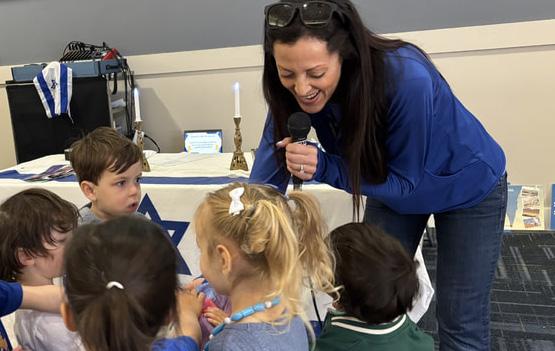
Conferences
Formal conferences are held twice a year, with additional meetings available upon request.
Infants
Yes, infants receive a conference! Your child’s teachers will discuss the results of an ASQ (Ages and Stages Questionnaire). This is also a wonderful opportunity to connect with the teachers and share any concerns or questions you may have about your child’s development. You will also receive a Learning Story, which is a snapshot of an experience your child had that highlights their growth.
Toddlers-Preschool
For these age groups you will meet with your child’s teachers as they share two Learning Stories. Each teacher will share a different story that will highlight an experience your child had that measures their growth. We do not provide check lists regarding alphabet knowledge or other academic expectations for kindergarten. The Learning Story will address your child’s growth in any or all the Colorado Early Learning and Development Guidelines.
All conferences will be conducted in person at the school. If you are unable to attend on the conference day, teachers are willing to work with your schedule. We do not conduct zoom conferences. If you have special circumstances, please speak with administrators.
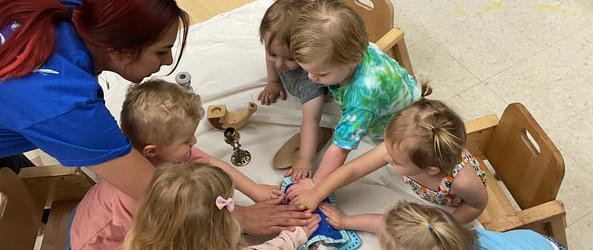
Behavior Guidelines
At the ELS, our goal is to support children in developing the conflict-resolution and self-regulation skills they need to thrive. We cultivate these skills by modeling respectful behavior, facilitating problem-solving, engaging in meaningful conversations, using redirection, and encouraging reflection. We treat each child as a valued member of our community and set clear, consistent limits to ensure everyone’s safety and well-being, while also promoting respect for materials and the environment.
Our educators focus on identifying appropriate replacement behaviors in the event a child displays *maladaptive behaviors (behaviors that are inappropriate and/or unsafe in a specific scenario) in order to support each child’s success, both in the classroom and across different settings. Through positive reinforcement and a restorative justice approach, we nurture social-emotional growth at every developmental stage.
To that end, we do not expel children for displaying *maladaptive behaviors so long as we are able to accommodate them as well as their classmates; instead, we work collaboratively with families and professionals to understand the root causes and provide compassionate, individualized support. However, we do require a strong partnership with families in this process — if a family is unwilling to engage in the collaboration necessary to support their child, we may ask them to seek a school setting that better aligns with their approach.
Behaviors You Can Expect at Each Age Level
At the ELS, we recognize that working through some maladaptive behaviors is a part of early childhood. We are prepared to support all children through these behaviors and offer them appropriate replacements whenever possible. As educators, we recognize there is a wide range of child development and that delays and/or disabilities may impact the chronological age when these behaviors naturally resolve.
When children present one or more of these behaviors in high frequency, our policy is to connect first with families to learn more about the function of the behavior. Whenever possible, we will collaborate with outside therapists and interventionists to determine appropriate replacement behaviors. Our school highly values home-to-school partnerships and is eager to work together to support your child
in developing the skills to be active participants in our school community. Therefore, a meeting will be scheduled between the Early Intervention Specialist, classroom teachers, outside interventionists whenever appropriate, and the family to discuss individualized interventions. Follow-up meetings will be scheduled as needed to support families with the development of prosocial behaviors.
We take the utmost care to intentionally teach at a developmentally appropriate level for your specific child. Should maladaptive behavior(s) continue past a developmentally appropriate age or at a frequency that becomes inappropriate, the ELS reserves the right to refer your family to outside therapists. We will consider the safety and wellbeing of all children in the classroom when making these decisions and referrals.
The Early Learning School deeply values your contribution to behavioral interventions; if families choose not to participate in restorative conversations or individualized supports, we may suggest you find alternative care for your child.
*In an early childhood setting, maladaptive behaviors are actions that interfere with a child’s ability to learn, build relationships, or participate in daily activities. These behaviors often reflect underlying needs and can improve with guidance, support, and skill-building.
Typical behaviors to expect at each age:
Infants
0-16 months
• Some biting and/or teething on peers
• Climbing over/on top of peers
• Scratching
• Mild hair pulling
Toddlers
16-30 months
• Increase in frequency and severity of bites, including bites that break the skin
• Hair pulling
• Scratching
• Pushing
• Kicking
• Tantrums
Twos 24-36 months
• Some biting
• Scratching
• Pushing
• Kicking
• Resource hoarding with preferred materials
• Tantrums triggered by frustration
• Emerging physically risky play including wrestling
Preschool 3-5 years
• Occasional physical reactions to frustration including hitting, kicking, scratching or temper tantrums
• Boundary testing
• Some exclusionary behavior including language around including or excluding others from “birthday parties”
• Physically risky play involving superheroes and wrestling or other forms of “rough play”
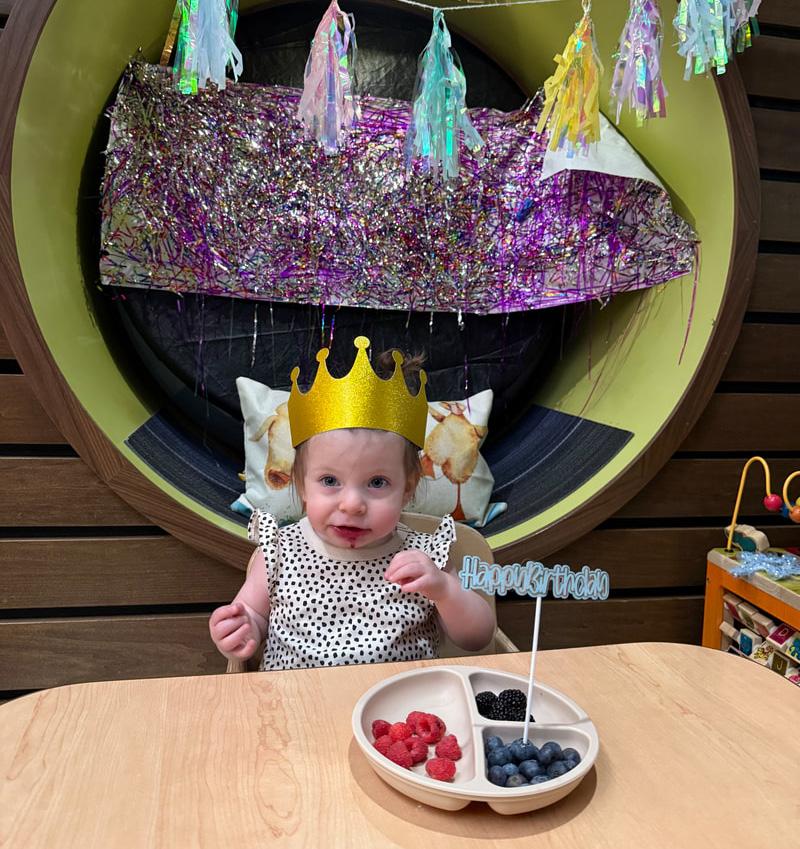
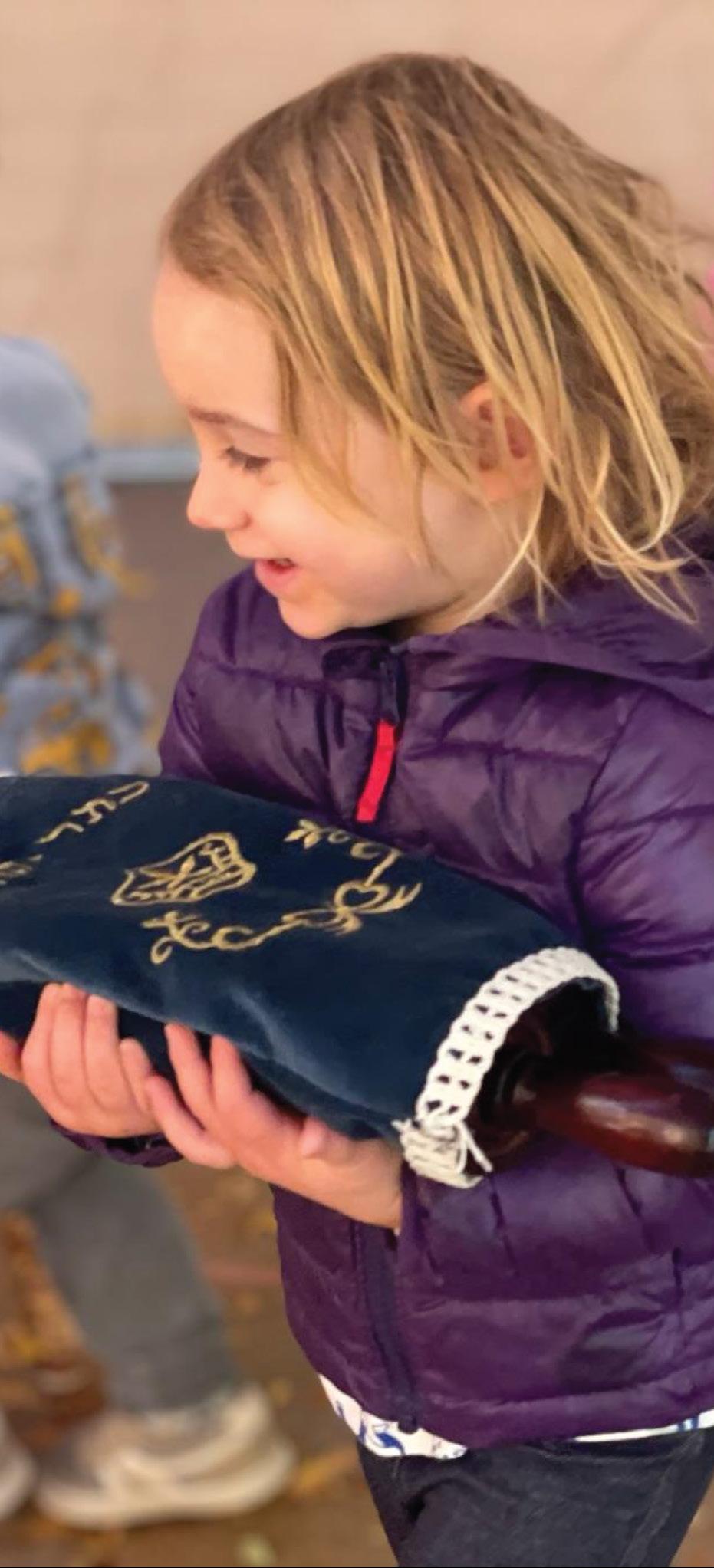
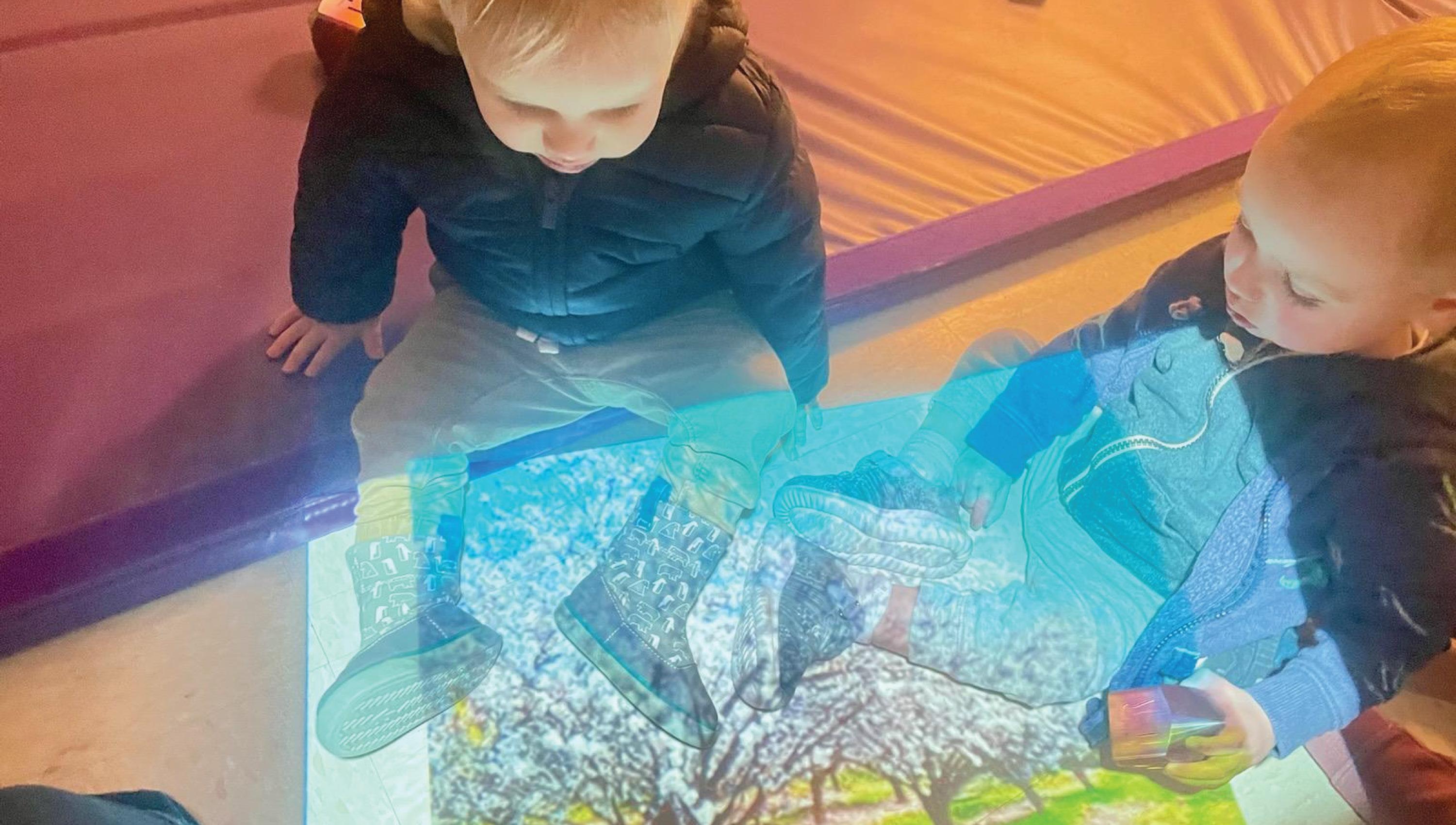
MISC Policies & Procedures
Birthdays and Other Celebrations
If your child would like to celebrate their birthday during the school day, speak to your child’s teachers about an appropriate time. All items that are intended to be shared in the classroom need to be Kosher-style and pre-packaged. Discuss any ideas you have with the teachers prior to your child’s birthday. Please refrain from providing goodie bags, stickers, toys, or party favors within the ELS.
At the end of the school year, each classroom will host a celebration to honor the growth and accomplishments of every child. These celebrations are planned collaboratively by Room Parents and teachers. Please note that preschool classrooms do not hold formal “graduations,” as our program follows a mixed-age group model.
Pets
The JCC is pet-free. Only service animals are permitted. Pets will not be allowed in the ELS, unless it is a special pre-arranged activity. The exception to this is classroom pets.
Jewish Content and Shabbat
Jewish learning is an integral part of our program. We incorporate Jewish education through Jewish lenses or values, particularly as we celebrate Jewish holidays, Shabbat, and learn about Jewish traditions, customs, and ceremonies. We believe that an important part of the young child’s developing sense of self is awareness of his/her cultural heritage. As a result, our goal is to deepen each child’s understanding and appreciation of Jewish tradition and culture. While Jewish values frame everything we do, we are inclusive of those who do not identify as Jewish and focus on the universal values that align with Judaism. The ELS does not practice other religious traditions such as Christmas or Easter in the school.
The ELS celebrates Shabbat (the day of rest, beginning Friday at sundown and ending Saturday at sundown) on Fridays. The children join for the lighting of the candles and blessings over grape juice and challah (Sabbath bread.) All classes come together on Friday mornings for Shabbat Sing. As a school, we sing songs, dance, and celebrate birthdays and Shabbat.
Taking Photos in the ELS
You are welcome to take pictures and videos of your children at school. We ask that you be mindful of online posting and sharing of pictures that include other children. Some parents have strong feelings about the use of photos of their children. We provide all families with an opportunity to indicate on their forms in which circumstances we may use their child’s photo. If you are going to post pictures to your personal social media, please make sure there are no other faces visible except for your childshowing backs of heads, obscured faces, etc., is permissible.
Television & Video Viewing
The Early Learning School is an activity-based educational environment where we believe children learn best through active participation, hands-on experiences, meaningful conversations, and exploration. As such, children do not watch movies or cartoons during the school day. However, on occasion, teachers may show a short, purposeful video that supports and enhances the learning taking place in the classroom.
Family Involvement
We strive to make our ELS welcoming to all families. Your comfort in the program is an essential factor in your child’s success at the school. Please know that your comments, suggestions, and feedback are always welcome. We invite you to participate in our program. Here are the ways that you can get involved on an ongoing basis:
• Being a Room Partner
• Volunteer to help with all-school events
• Volunteer in the classroom
• Volunteer for project help and garden help
What does a Room Partner do?
Each classroom has two room partners. The role is as follows:
1. Communication Support
Room Partners serve as a liaison between the teaching team and classroom families. This includes helping to share reminders, coordinate volunteer opportunities, and encourage participation in school-wide and classroom events. All communication should reflect the values and professionalism of ELS and should be reviewed by school administration when necessary.
2. Community Building
Room Partners help foster a sense of community by organizing or supporting occasional classroom gatherings or family meet-ups (e.g., a park playdate or group snack signup). These should always be inclusive and optional.
3. Teacher Support
Room Partners may assist in coordinating appreciation gestures for teachers (such as birthdays, holidays, or Teacher Appreciation Week). Contributions should be voluntary and communicated in a way that respects all families.
4. Respecting Boundaries
Room Partners do not speak on behalf of the school, teaching team, or other families regarding school policies, classroom concerns, or individual children. Any questions or concerns related to these areas should be directed to the teaching team or administration.
5. Confidentiality and Inclusion
Room Partners are expected to maintain confidentiality, respect the privacy of all families, and create a welcoming environment for all. Communication and activities should reflect the inclusive and diverse values of our community.
By agreeing to serve as a Room Partner, you are committing to support our school, uphold respectful communication, and work in partnership with teachers and administration to enrich the classroom experience.
Family Conduct
• To ensure a positive, respectful environment for all children, staff, and families, we ask that all family members and caregivers adhere to the following conduct guidelines:
• Treat all staff, children, and other families with courtesy and respect.
• Use appropriate language and behavior at all times on school premises.
• Address concerns directly and respectfully with the relevant staff or administration.
• Follow school policies and procedures, including those related to health, safety, and confidentiality.
• Avoid the use of cell phones during drop-off/pick-up to ensure meaningful interaction with staff and children.
• Refrain from any behavior that could be perceived as intimidating, threatening, or disruptive.
• Are not allowed to place items in any child’s cubby that says “keep out of reach of children” or that has not been approved by the administration.
Failure to adhere to this policy may result in a meeting with school administration and, in extreme cases, may impact the family’s continued enrollment.
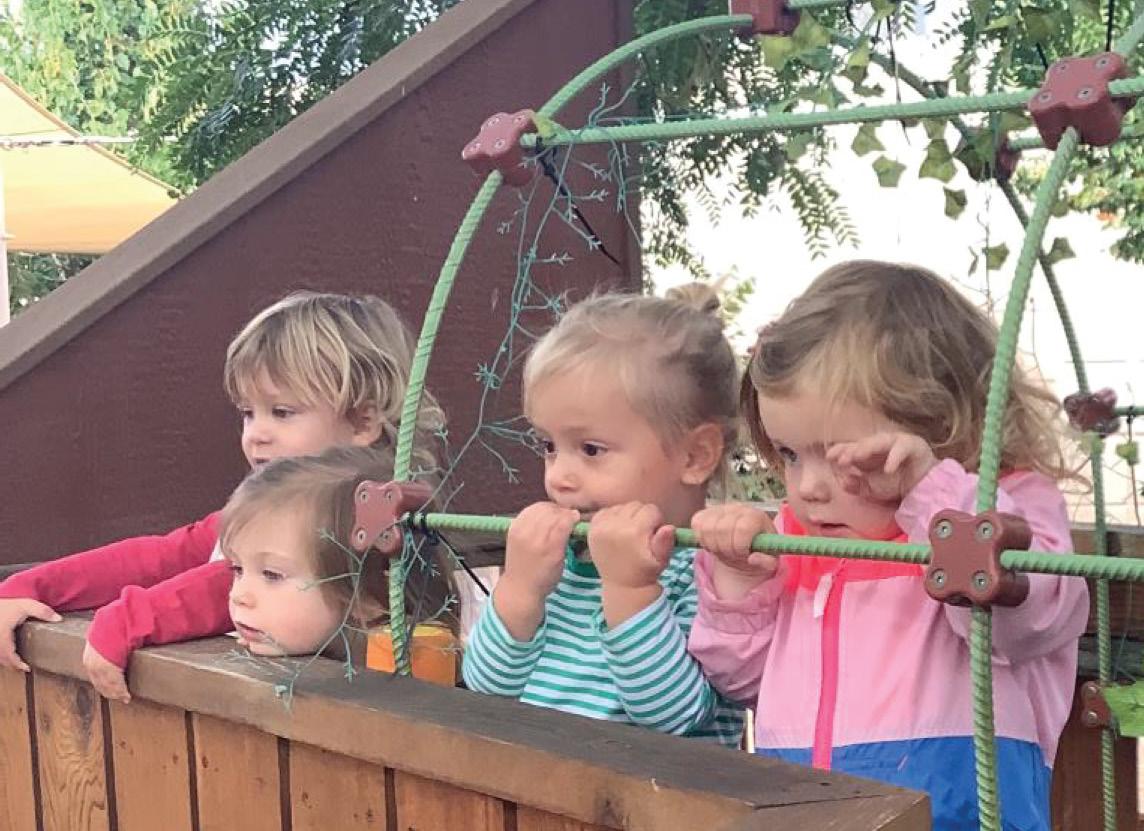

Communications
From Classrooms
• Brightwheel: Teachers provide daily information concerning children’s toileting, feeding, napping and other information families need about the day. Classrooms will also share at least one picture from your child’s day.
• Conferences: Formal conferences are held twice a year, with additional meetings available upon request.
• Open Door Policy: Families are welcome to visit and participate in classroom activities. Please speak with your child’s teachers to arrange times and dates.
• Weebly: Each classroom does a bi-weekly blog. This is an opportunity to read about the classroom’s interests and focus. Teachers will also write about child development and offer resources.
Email Communications
ELS administration will contact families either by email or through Brightwheel. You will receive a newsletter on the 2nd and 4th Friday of each month. Once a month we will post a blog on Weebly.
Calls to Staff
The staff is committed to keeping you updated on your child’s progress. Pick-up and drop-off are not appropriate times to speak with your child’s teachers at length, as they need to be focused on the children in their room. If you need to speak with your child’s teachers, please arrange a meeting time with them via email, Brightwheel, or call the ELS Office (303.316.6377). We will make certain that the teachers receive the message. The teachers will return your call as soon as they are able. Please do not call staff at home or on their cell phones. Please do not text staff.
Honoring the Home Language
For our families for whom English is not the primary language spoken at home, the ELS will provide resources to make all information accessible and easily understandable, as we are able. If your family would like access to any ELS information in a different language from English, please let a member of the administrative team know.
Our team of educators will also support your family’s primary language by incorporating multiple languages into the classroom environment and day-to-day routines. You will be asked to fill out a form with your family’s language and words for different common things, such as how your child refers to their parents, grandparents, lovey, and more. The teachers will use these words to support your child’s language development.
If your child speaks only your primary home language (other than English) the ELS will work to have a teacher who also speaks the primary language in the classroom (dependent on teacher availability).
Responding to Emergencies
To ensure the safety of the children within our program, we respond to all emergency situations that include but are not limited to; lost children, tornados, and fires. If your child becomes lost while in our care, we will alert the proper authorities, as well as all staff within our building, and we will immediately call the parents/guardians. On a monthly basis we conduct practice fire drills. In addition, over the course of the year we conduct lockdown drills, tornado drills, and evacuation drills to ensure that all staff and children are familiar with the drill procedures in case of a real emergency.
Emergency Communications
In the event of changes or emergencies that would affect ELS drop-off or pick-up time or location, you will be notified as soon as possible through Brightwheel.
Unforeseen Life Events
In the event that your family is experiencing a trauma, ongoing or otherwise, please feel free to reach out to the ELS Admin for support. This can include any trauma or adversity your family is experiencing, from the death of a loved one to a health event in the family. We have resources we can make available to support your family. In addition, we have developmentally appropriate resources for your child to support them coping with the emotions they may be processing. We view our school as a community and will always do what we can to support the members of our school.
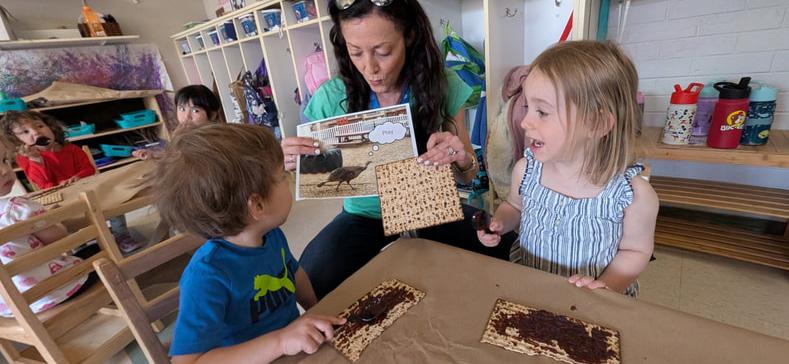
Accounting, Billing and Financial Aid Procedures
ELS Enrollment Policies
• All enrollment is done online through Amelia.
• Children are enrolled on a 12-month contract from August to August.
• Classroom confirmation forms, enrollment fees, deposit, and payment plan contracts are signed at the time of registration for all families participating in the registration process to ensure a space in the JCC ELS.
Enrollment Fees for 2025-2026 School Year!
All enrollment materials must be submitted with the following fees that may be subject to change in future school years:
• A non-refundable, non-transferable enrollment fee of $150
• A non-refundable, non-transferable deposit of $1,000 per child
• If a scholarship is awarded, the deposit is reduced to $500
• The $1,000 deposit will be applied to the final month of the billing year
• Please note: If a child withdraws before the end of the year, the deposit will not be applied to the final month’s tuition and remains non-refundable and non-transferable
• A non-refundable, non-transferable $250 security fee
These fees secure your child’s enrollment and help us plan for the school year ahead.
Tuition and Fees
Tuition may be paid by check, credit, or electronic draft and may be paid on a monthly or annual basis. Monthly tuition is fixed, and there will be no tuition adjustments based on attendance or the number of ELS days in any month. Tuition is billed on the 20th of each month. Tuition is due no later than the 20th of each month.
Payment plans for enrollment fee(s) and deposit(s) may be considered but must be paid in full prior to August 1, to maintain enrollment eligibility. It is the responsibility of the parent or guardian to ensure timely payment of tuition. The JCC is not required to make continued attempts to collect.
Should you fail to pay tuition on time or default on payment repeatedly, it may jeopardize your child(ren)’s enrollment in the ELS.
Infant Holding Fee
If you choose to not start at the beginning of the school year, or your child is not old enough to start in August, we require a half month’s tuition from the time you hold your spot until January 1 of the school year. After January 1, full tuition will be required.
Changes in Enrollment
All changes you wish to make to your child’s enrollment must be in writing. This can be done via email and will be effective during the next billing cycle; we do not pro-rate for changes mid-month. We require 60-day notice when withdrawing or changing you extended day status. There are no credits or refunds given for vacations or temporary withdrawals from ELS.
Tuition Assistance
The JCC strives to make its programs accessible to families from all backgrounds. To apply for a scholarship, you can visit the website at jccdenver.org. Standard deadlines that will likely be adhered to include:
• Current Families and New Siblings must submit application by December 15. Notice of Award will be sent on January 7.
• New Families must submit application by December 15. Notice of award will be sent on March 1.
Link to the tuition assistance application is located on the JCC website under FAQs: jccdenver.org/preschool/admissions/
Community Organization Discounts and Awards
The Denver Preschool Program awards tuition credits to families who live in the City of Denver and County of Denver, whose child is in their last year of preschool (four-year-old classrooms) before kindergarten. Applications can be found at dpp.org.
Universal Pre-K (UPK) is available to all children in Colorado who are in the year before they are eligible for kindergarten. The program provides up to 15 hours of free, high-quality preschool per week for eligible children. Applications can be found at dpp.org.
Forms
The following forms must be complete and on file at the ELS prior to the first day of school for any child to participate in the JCC ELS. Completion of these forms is mandated by the State of Colorado, and is a licensing regulation. All forms must be submitted and kept up to date for the student to be eligible to attend the ELS. Failure to complete and submit the forms below may jeopardize your child’s enrollment in the JCC ELS.
All student forms can be accessed through Brightwheel. If the information changes at any point during the year, please make sure to see us at the front desk to submit a new form.
• Immunization Record - Children must be fully vaccinated before they can attend. We follow CO State immunization guidelines. We do not accept religious or personal exemptions.
• Physician’s Form
• ELS Pick-up Authorization Form
• Emergency Medical Consent Form
• ELS Permission Form
• ELS Personal Product Permission Form
• ELS Cot Permission
• ELS Financial Policies
• IFSP/BIP (Behavior Intervention Form, if applicable)
• Allergy and Asthma Care Plan (if applicable)
• Medication Authorization Form (when applicable)
Reasons for Dismissal
The administration reserves the right to deny or discontinue enrollment for any individual who is unwilling or unable to comply with the policies and requirements of the JCC Early Learning School.
In certain cases, dismissal from the program may be necessary. When possible, families will be given a two-week notice prior to termination.
Reasons for termination may include, but are not limited to, the following:
• Delinquent account for more than 30 days.
• Three incidents of Late Tuition payment.
• If the parent or guardian refuses to complete and sign forms required for the entrance or the continued enrollment of their child.
• Refusal by the parent, guardian, or emergency designee to pick-up a child deemed unable or unwilling to participate cooperatively in classroom activities due to illness, possible impending illness, lethargy, or uncontrollable harmful and/or disruptive behavior.
• ELS is unable to meet the needs of the child and/or parents or guardians.
• Behavior of the parent/guardian or of the parent/guardian or caregiver that may be reasonably interpreted as harassment, verbal abuse, or physical abuse toward the ELS Staff or others present at the Center.
• A parent/guardian or caregiver who is observed physically touching or speaking to a child other than their own in a way deemed inappropriate. This type of behavior is unacceptable and will not be tolerated by the ELS.
• Unescorted arrivals and/or lack of parental supervision of children prior to classroom admittance and/or during pick-up.
• Refusal to the policies and procedures outlined in the ELS Family Handbook.
JCC Early Learning School Handbook
ACKNOWLEDGEMENT FORM
Please read this handbook carefully and refer any questions you may have to your ELS Admin Team. After you have read this handbook, please complete this acknowledgement and return it to a member of the ELS Administration staff or simply sign it through CampMinder.
I have read and fully understand the policies, guidelines, and procedures described in the ELS Family Handbook. I have a copy of this handbook for my personal reference.
The Staenberg-Loup Jewish Community Center (JCC Denver) provides fitness, recreational, cultural, educational, and social programs to the Denver community. The following is our commitment to our community:
Mission Statement – The JCC Denver is a non-profit organization whose mission is to serve, strengthen, and inspire community guided by timeless Jewish values.
Vision Statement – The JCC Denver envisions an organization that will weave an inclusive community through experiences that inspire vibrant connections and lifelong journeys.
In alignment with the JCC’s mission and vision statement, the Early Learning School’s (ELS) approach to teaching is:
At the ELS, our community of teachers strive to foster a sense of curiosity, creativity, and imagination, while also teaching our students the values of respect, responsibility, and collaboration. Our approach to early childhood education is informed by progressive educational practices, universal Jewish values, and a constructivist* philosophy, all woven together to guide and inspire us to celebrate the uniqueness of each individual in our school. Our approach to learning empowers our educators to tap into our students’ natural proclivity for exploration and wonder, while also ensuring that each individual feels valued as a member of our community.
* The constructivist approach views children as active participants in their own learning. Education is then much more than rote memorization; rather, it is integrating and assimilating knowledge to be further used and explored. Constructivist strategies seek to ignite a child’s curiosity and love of learning.
